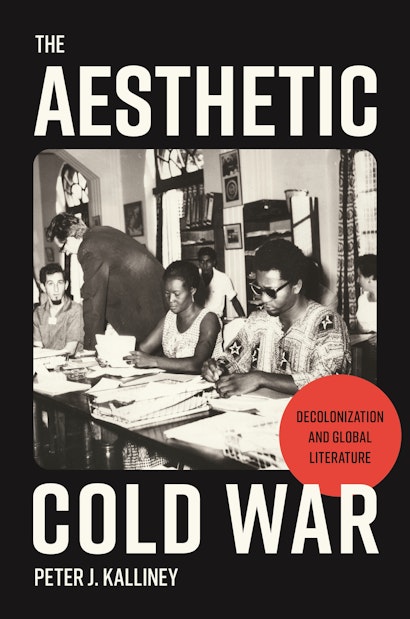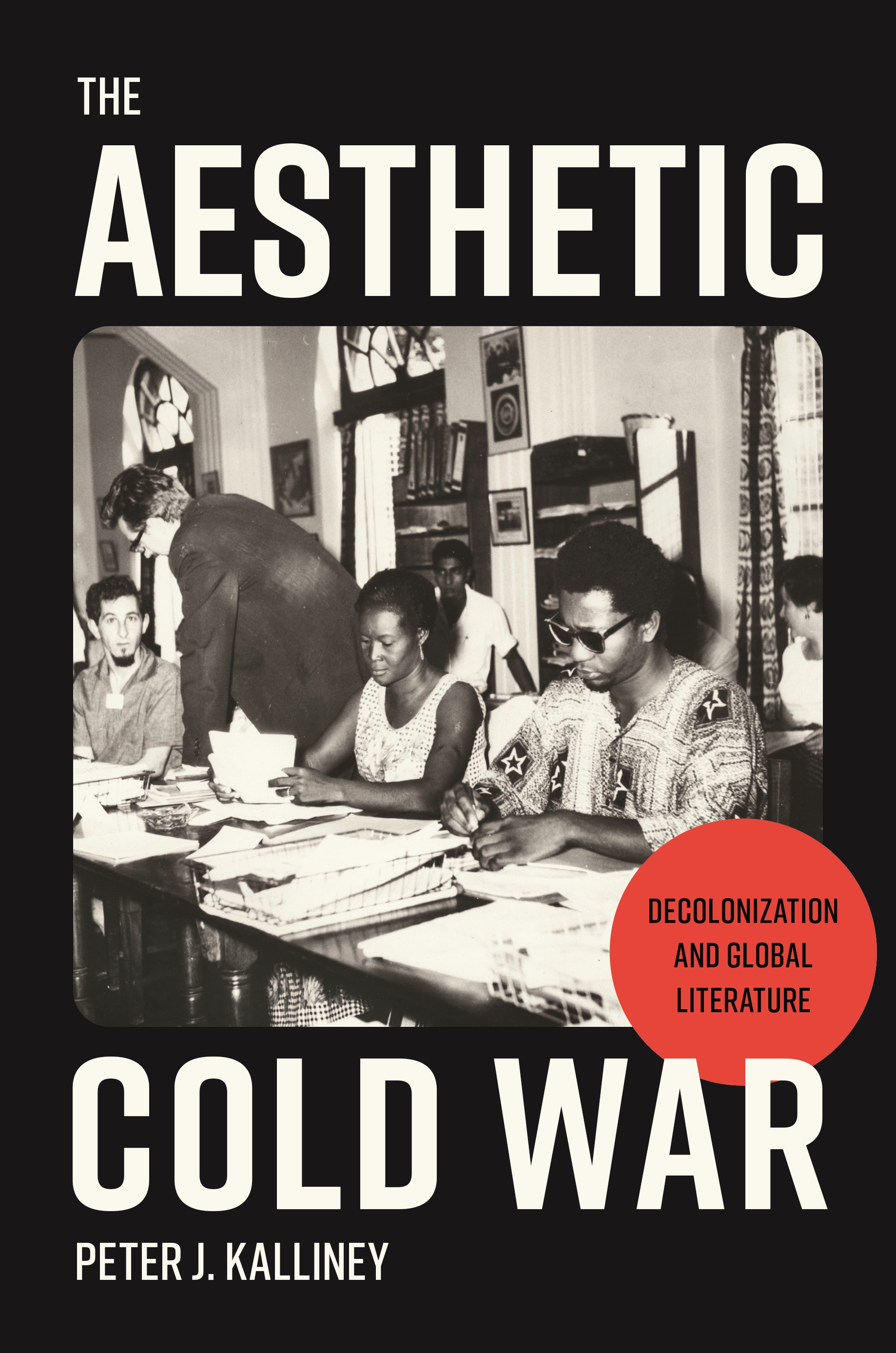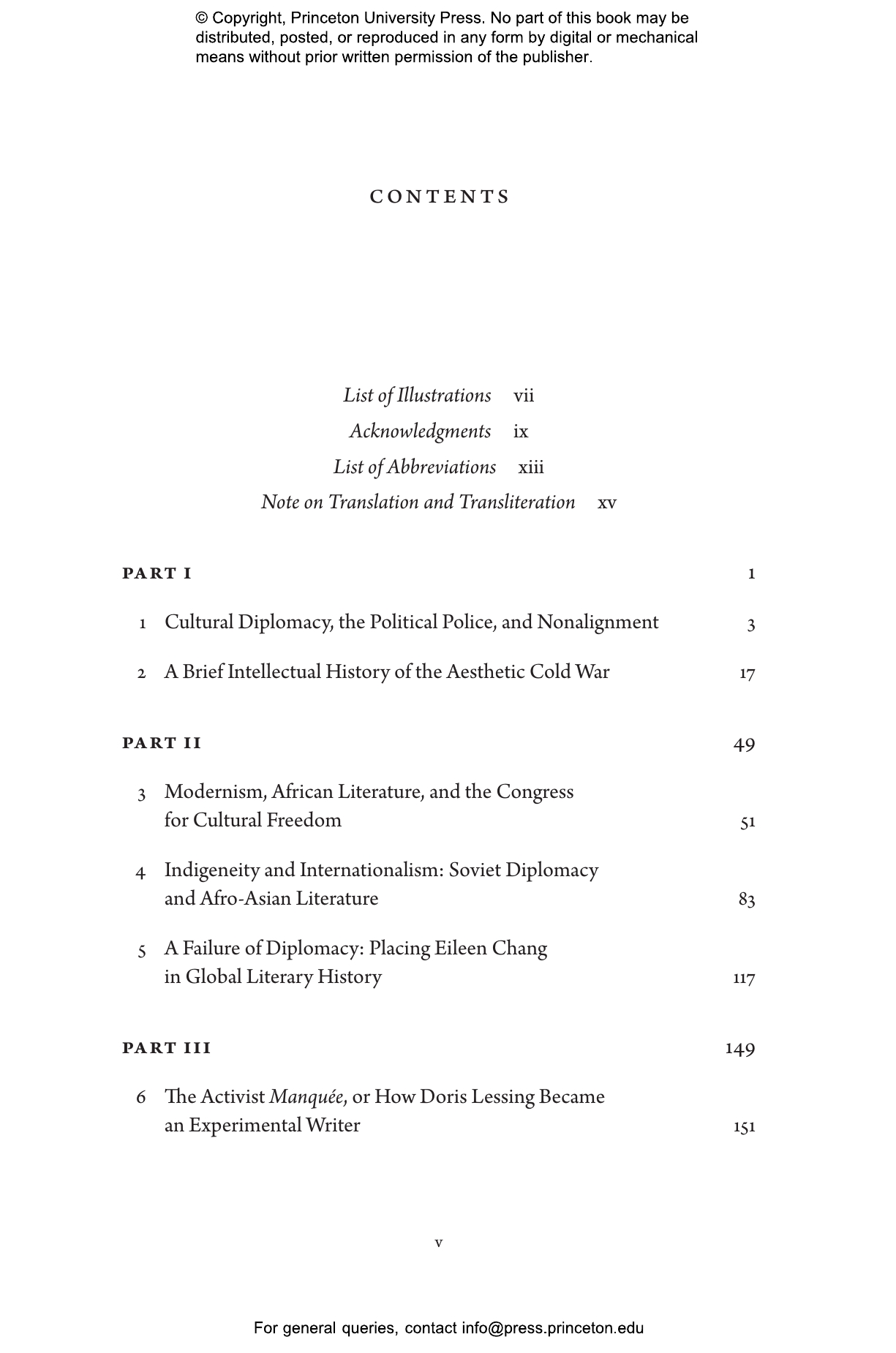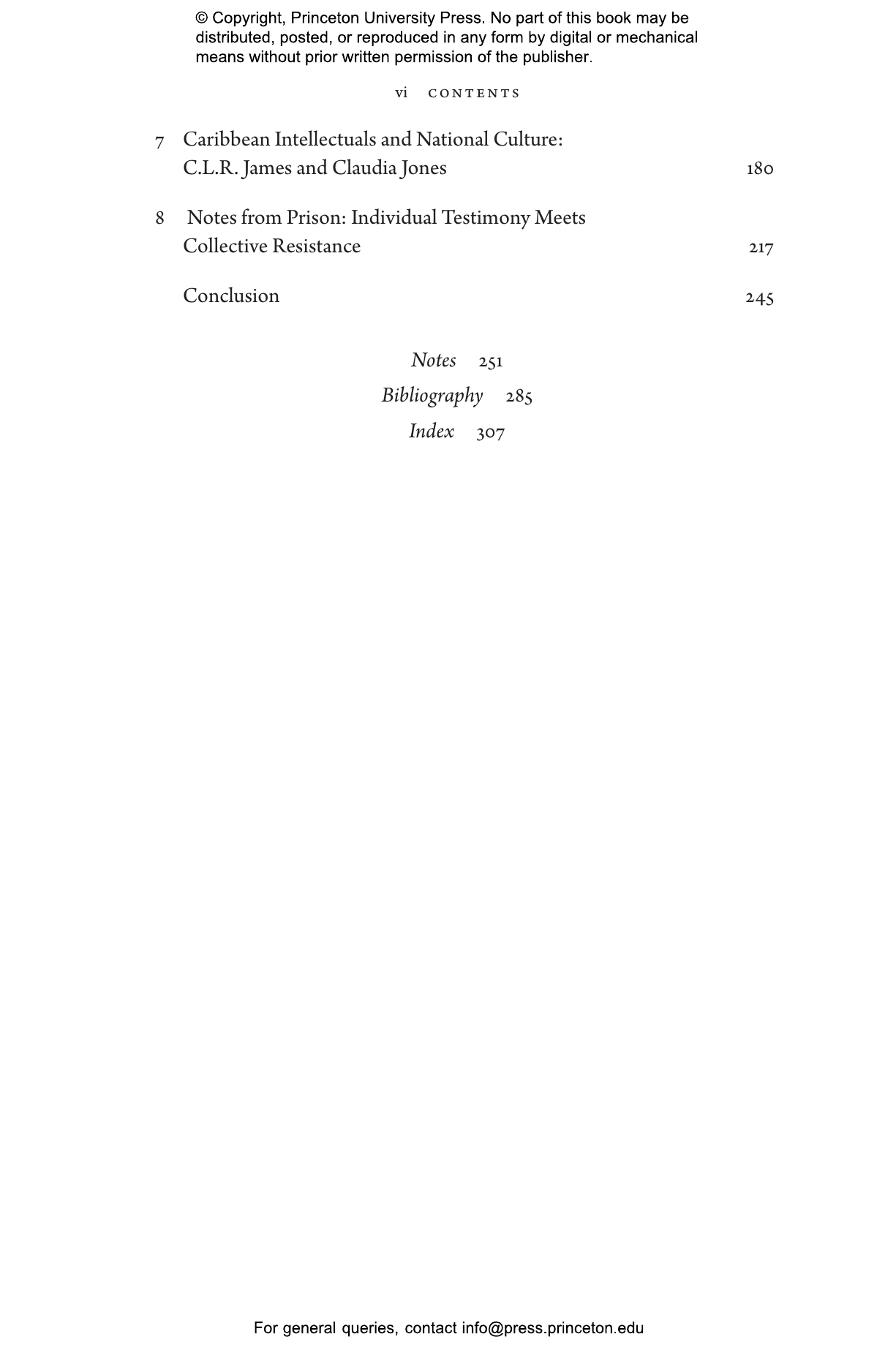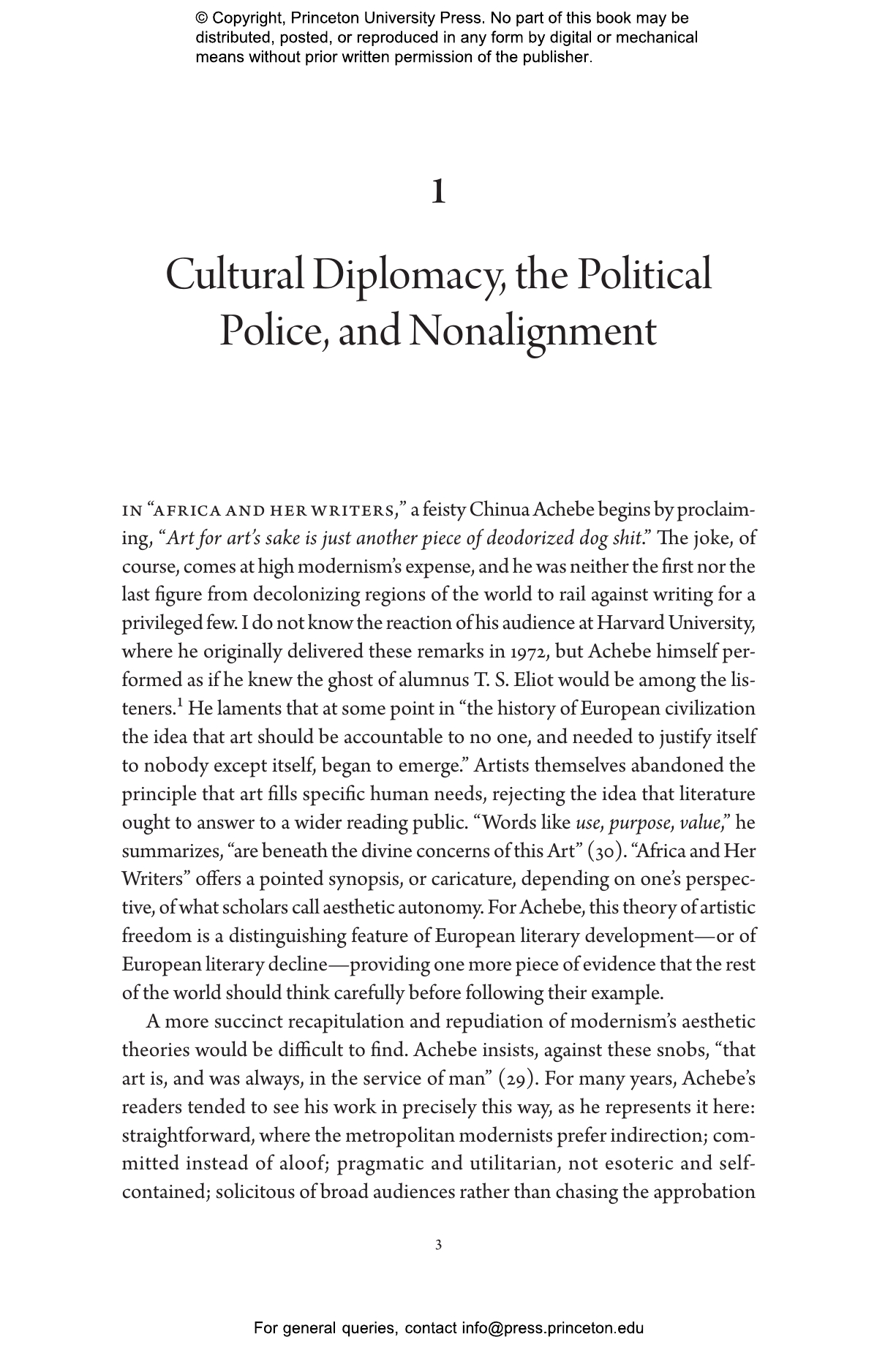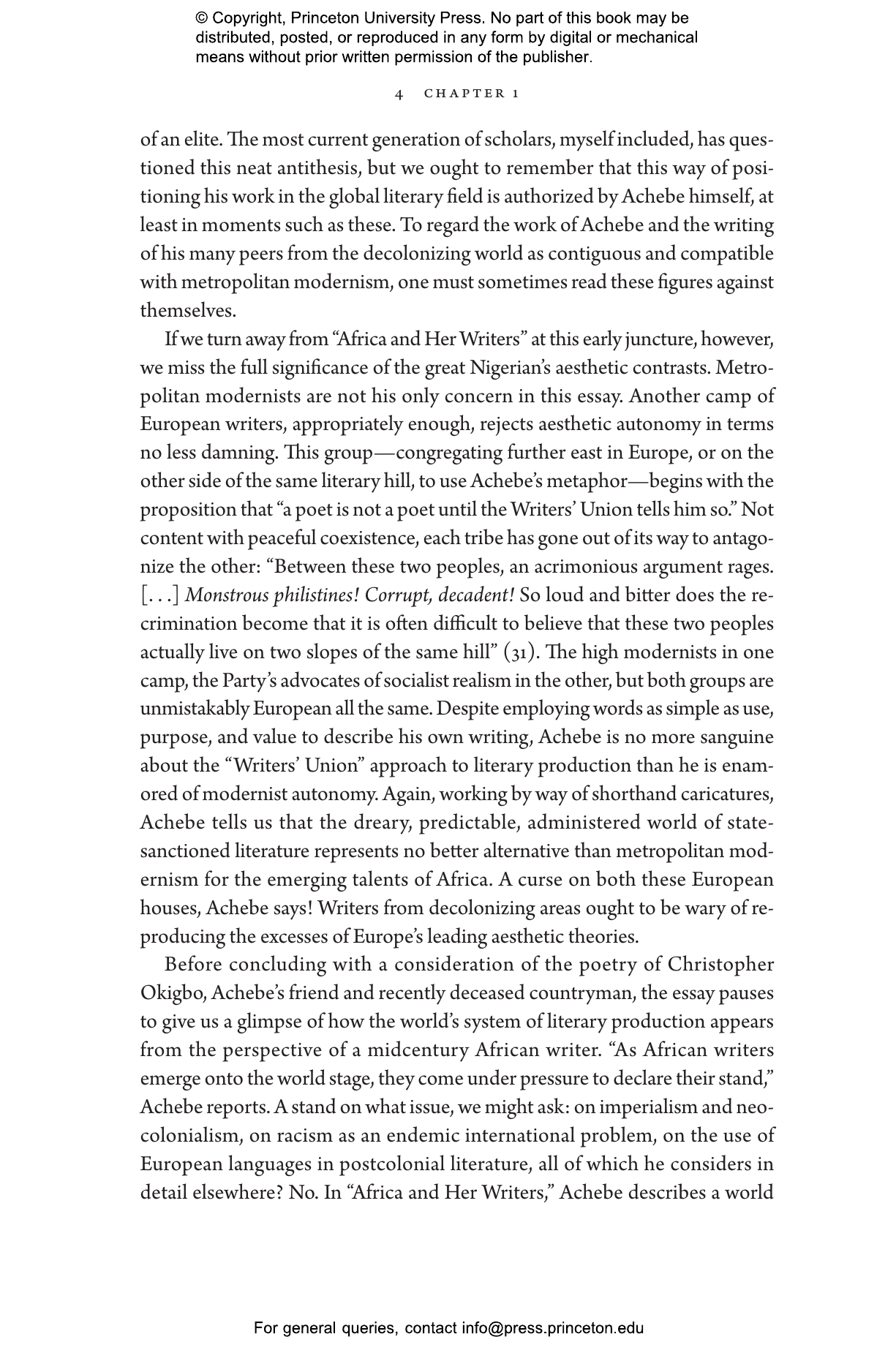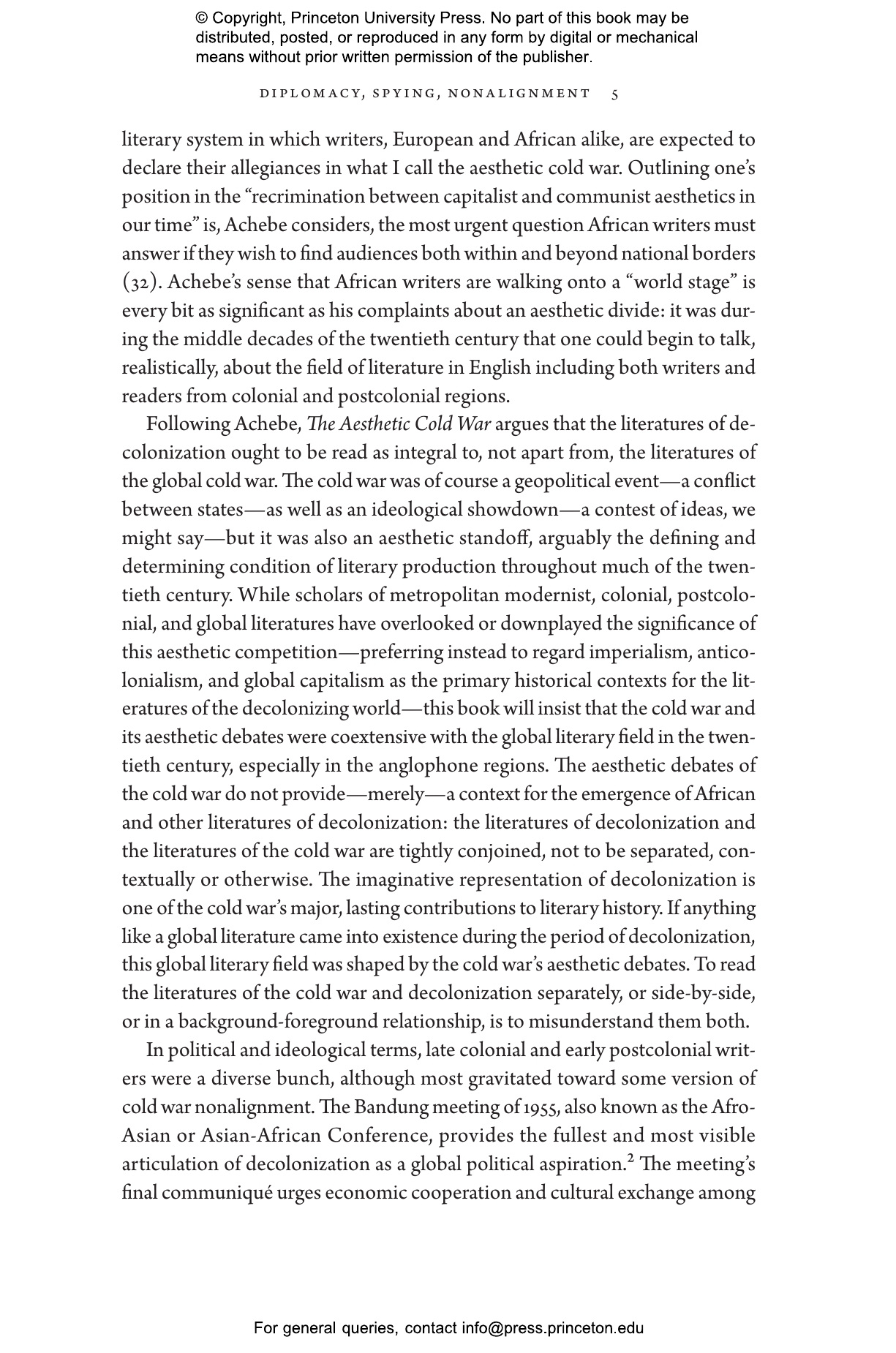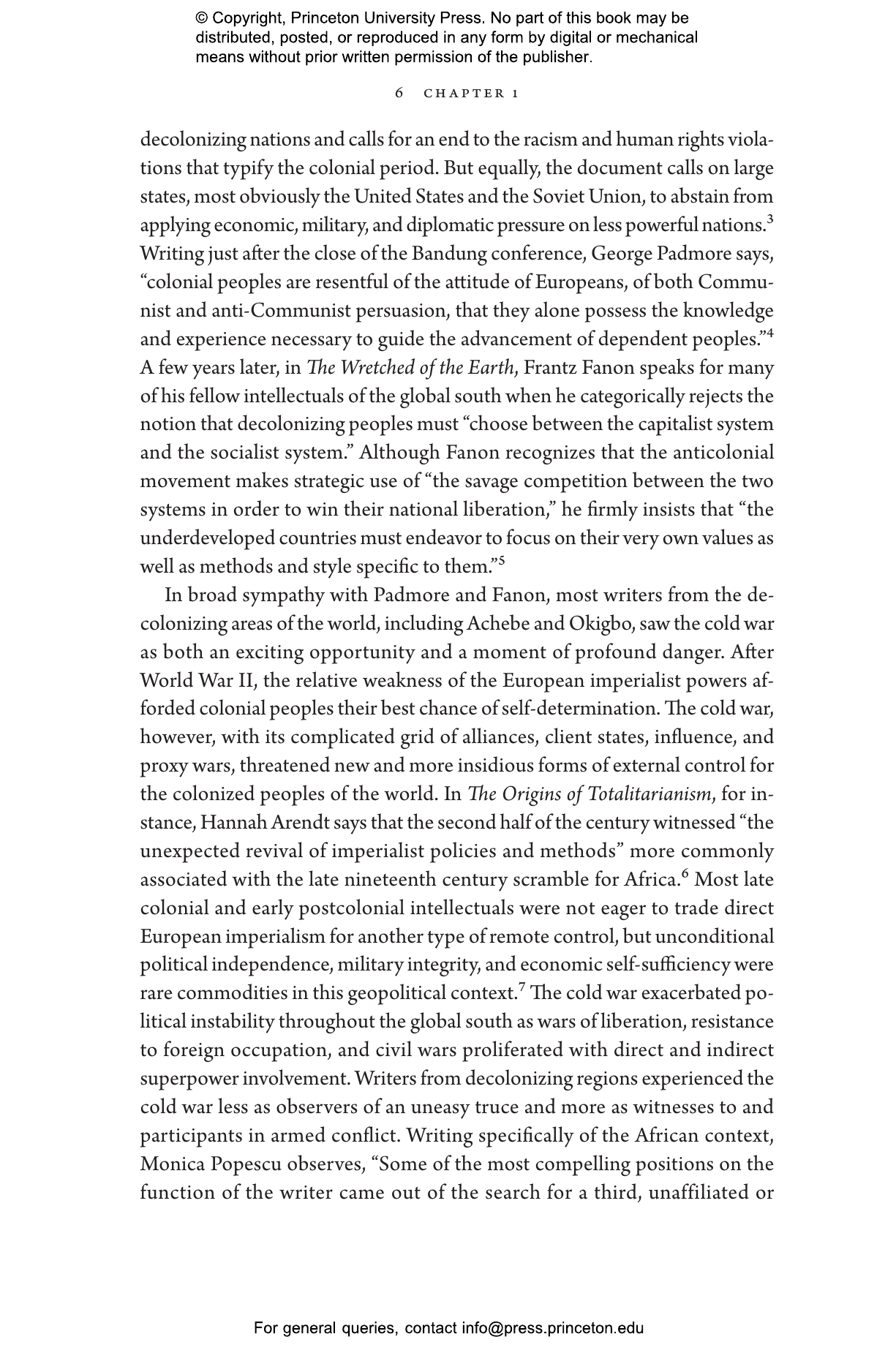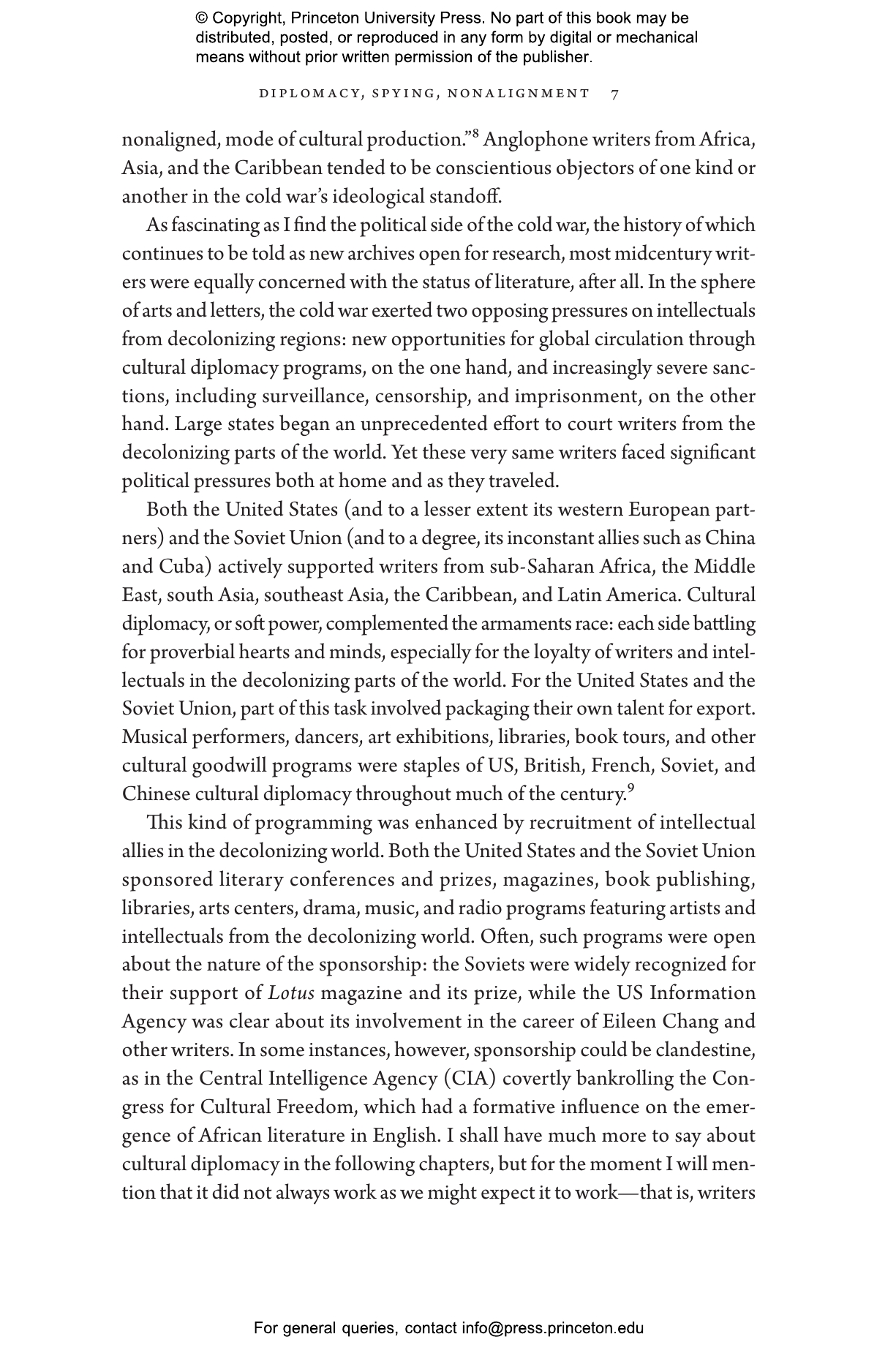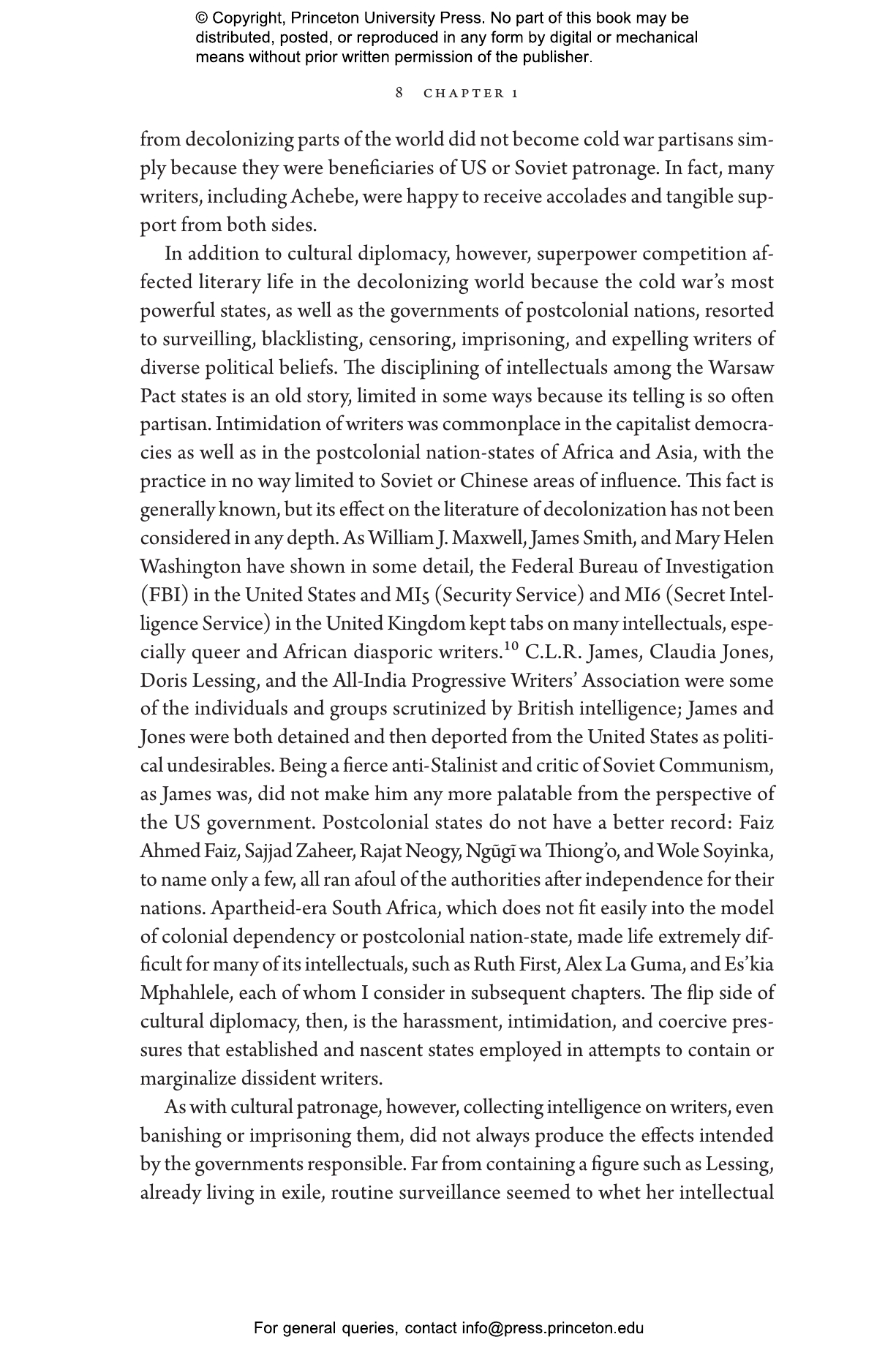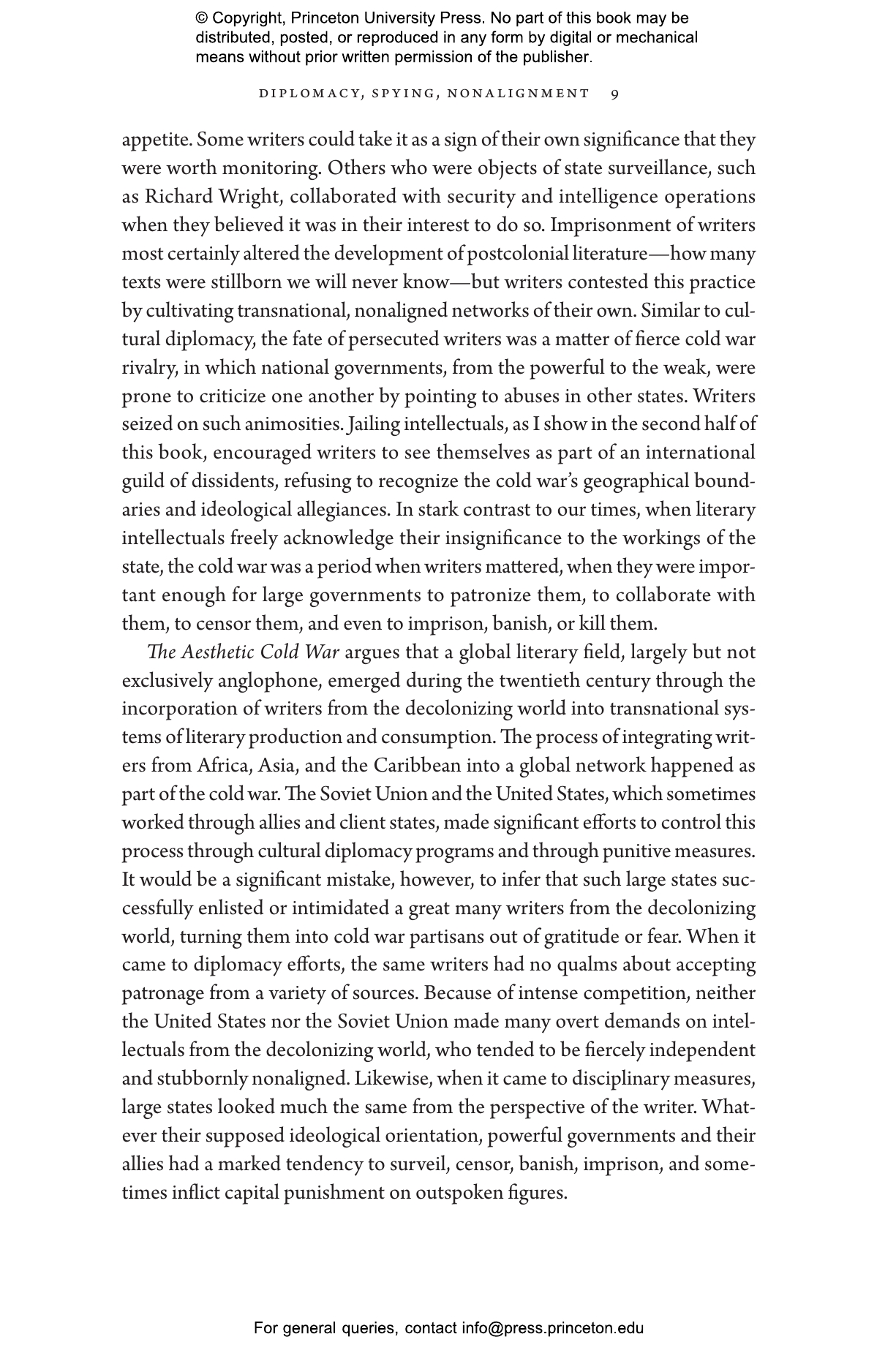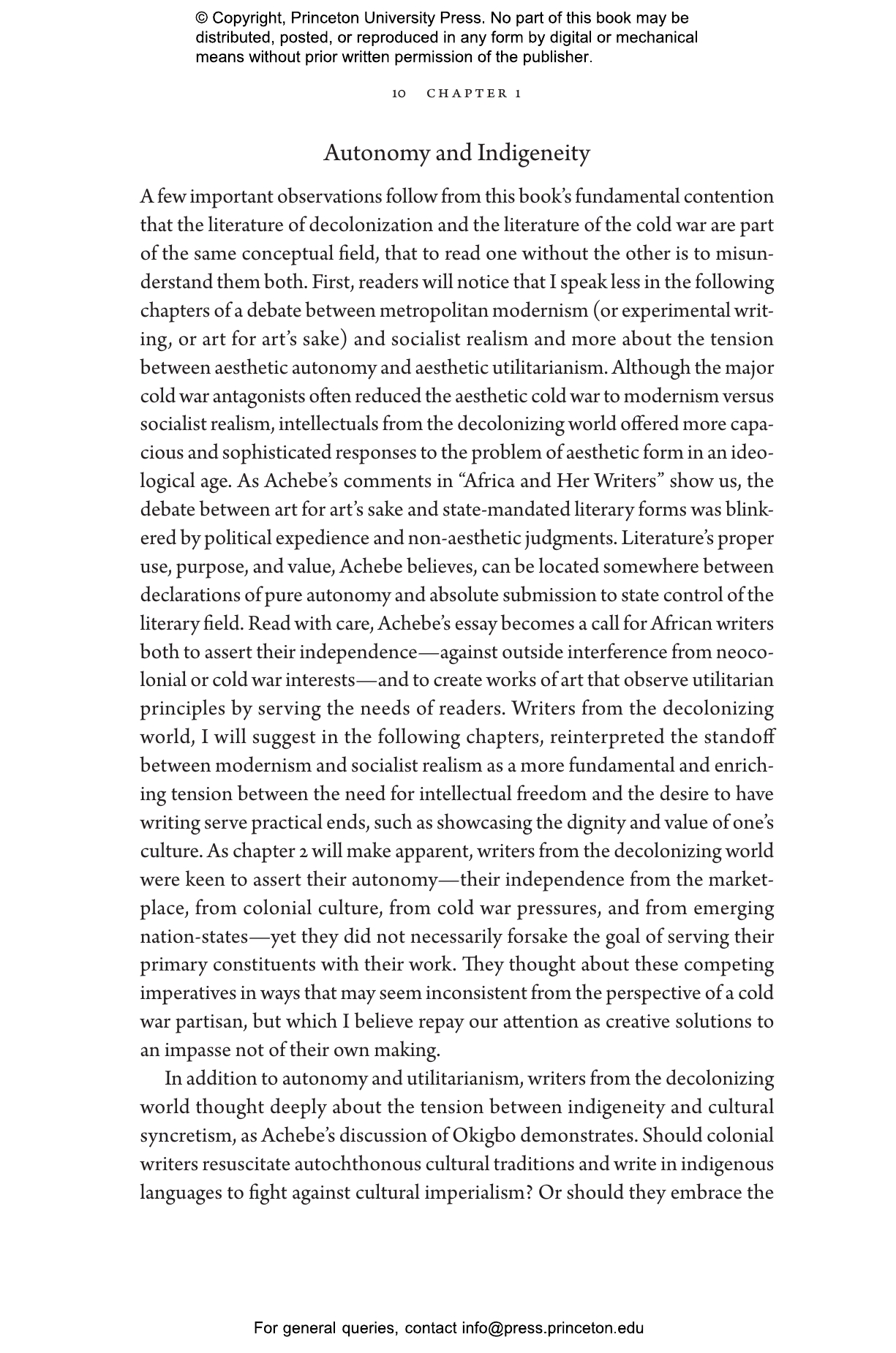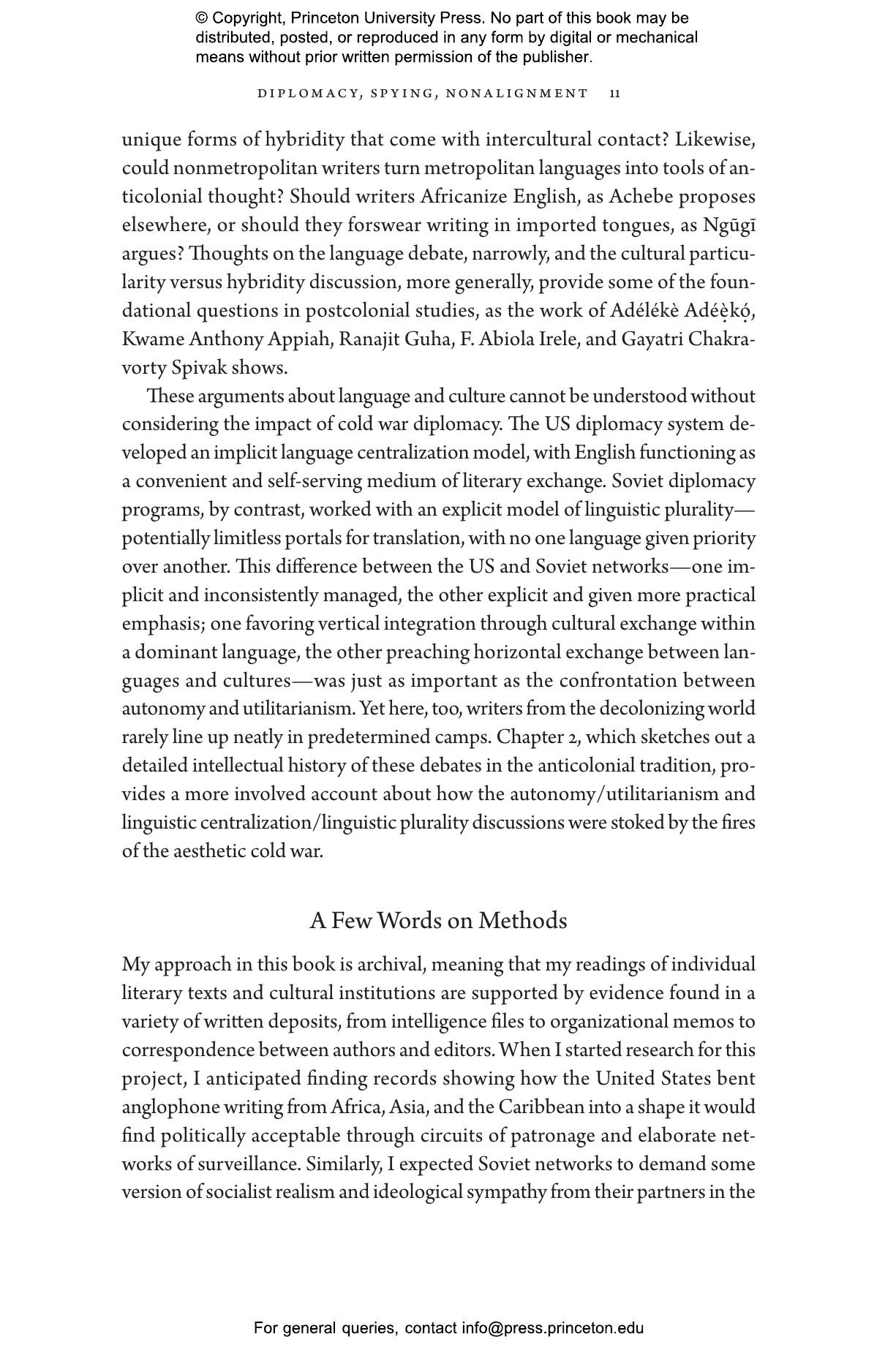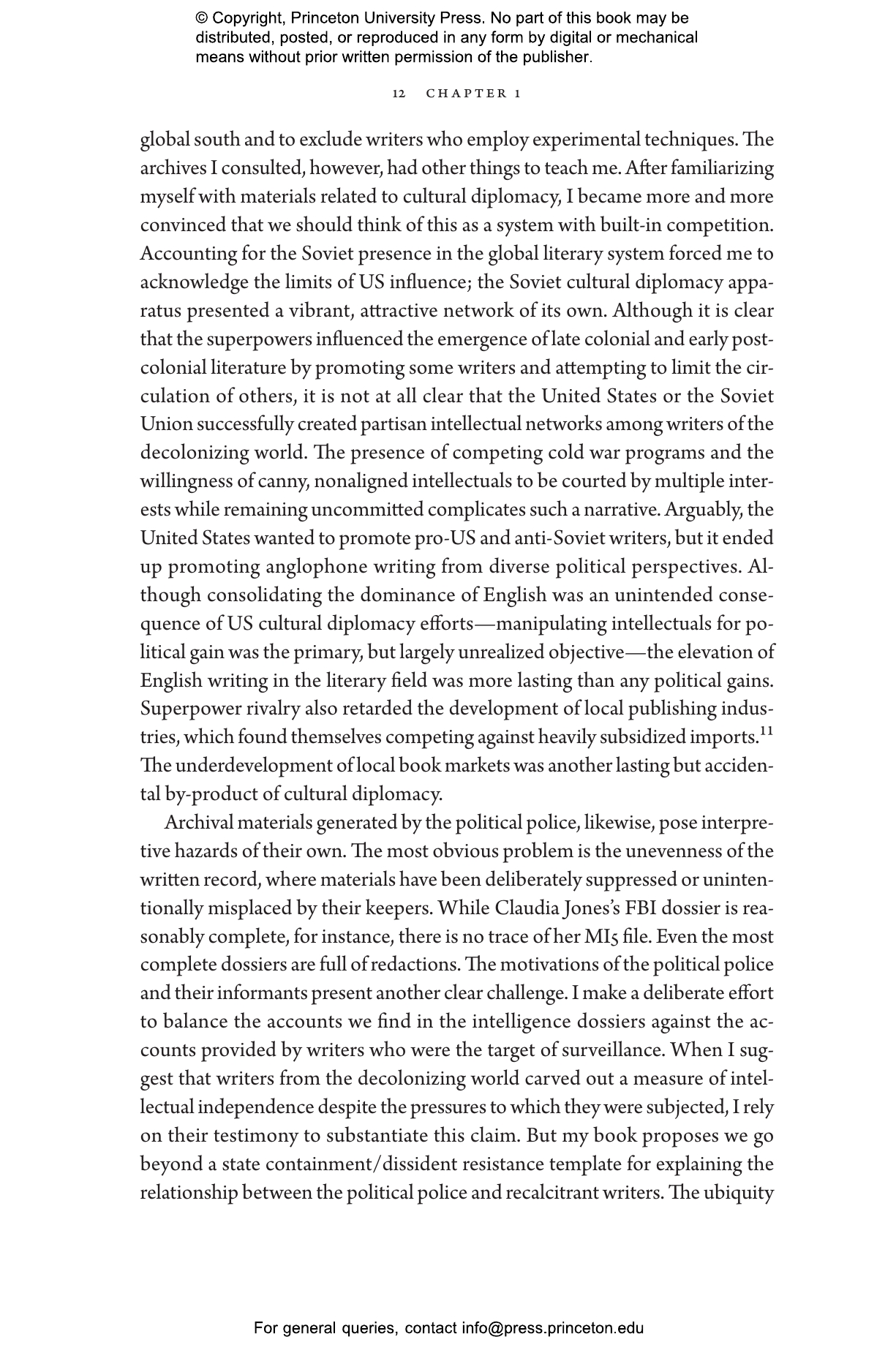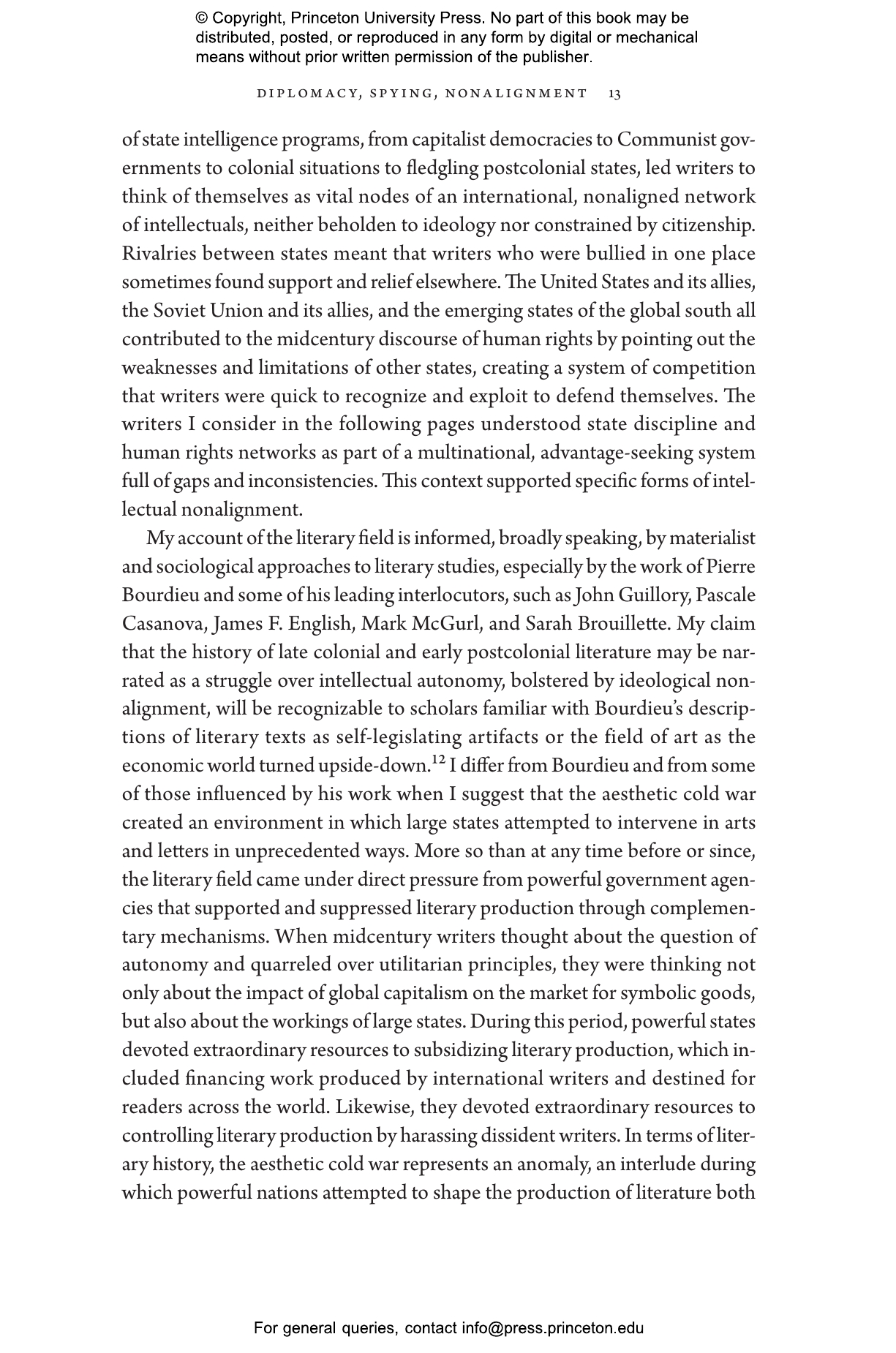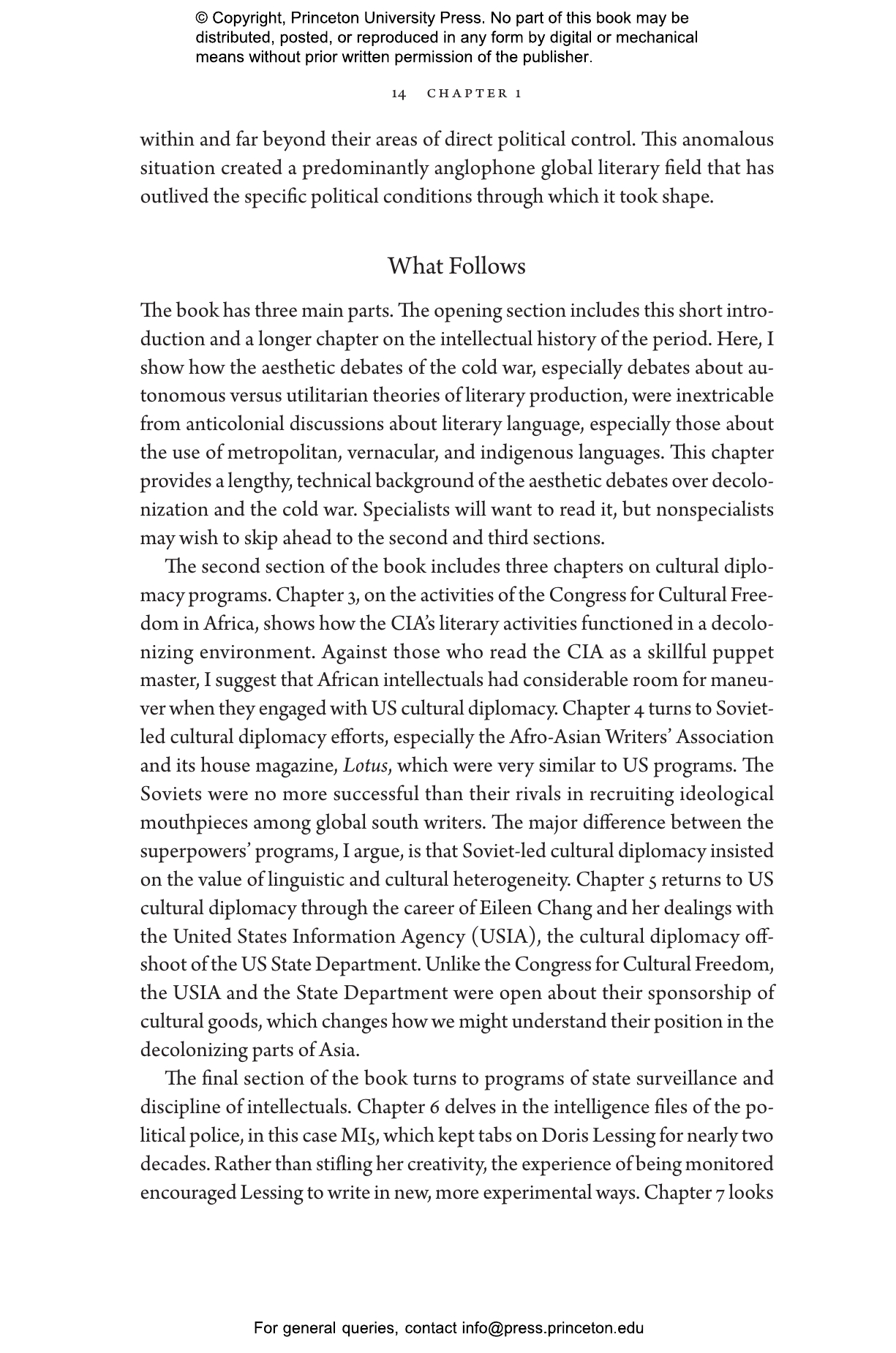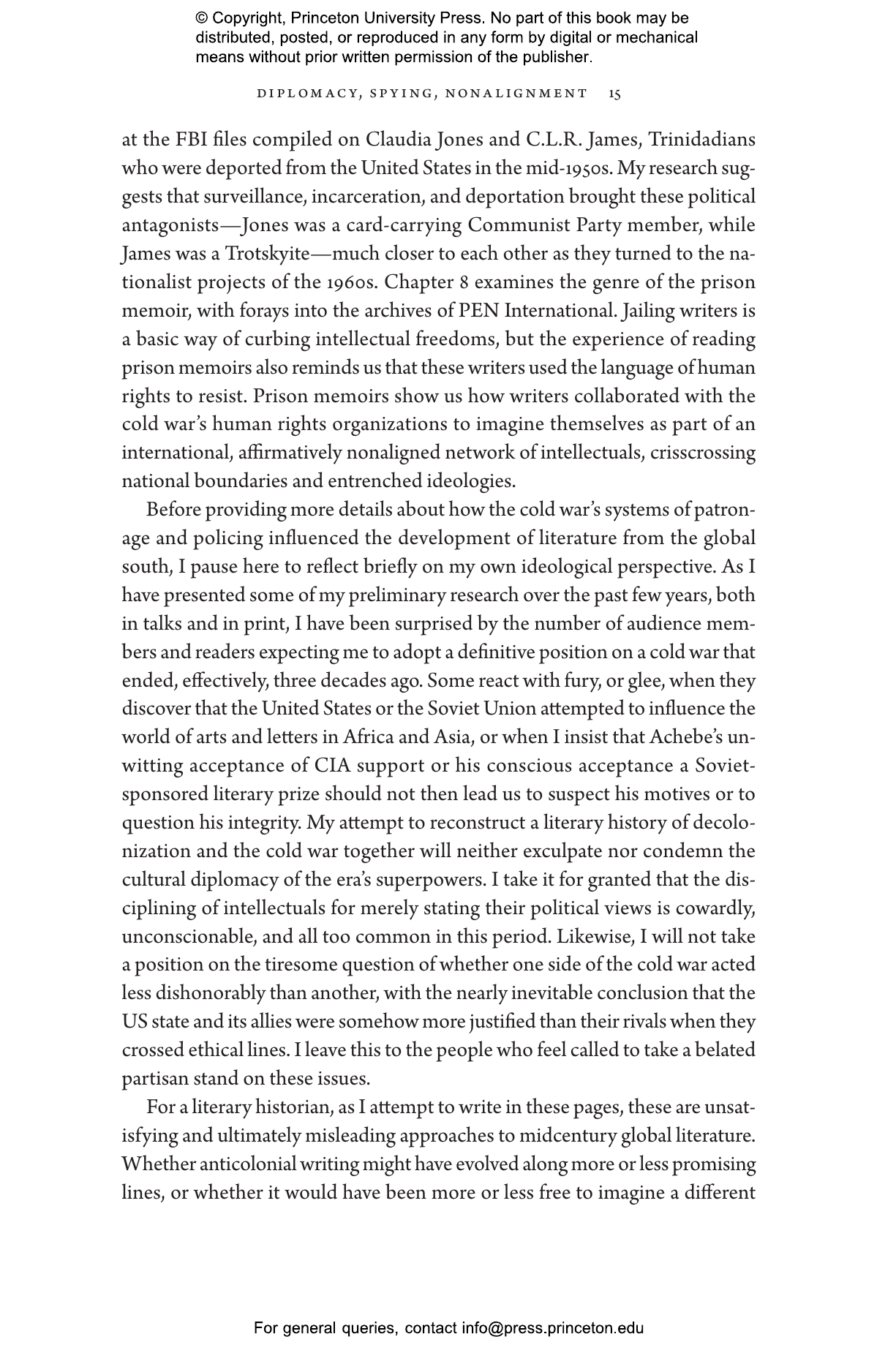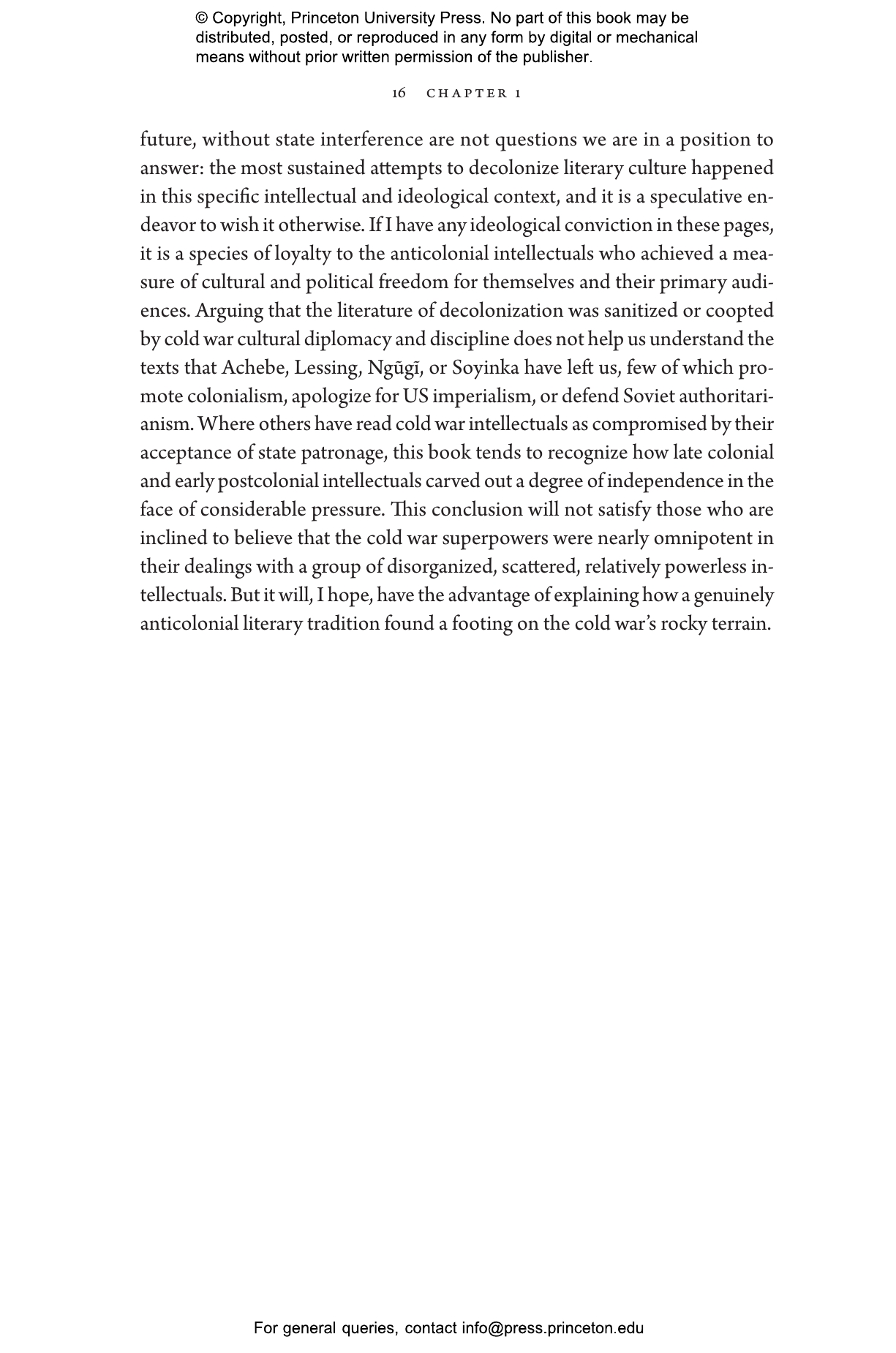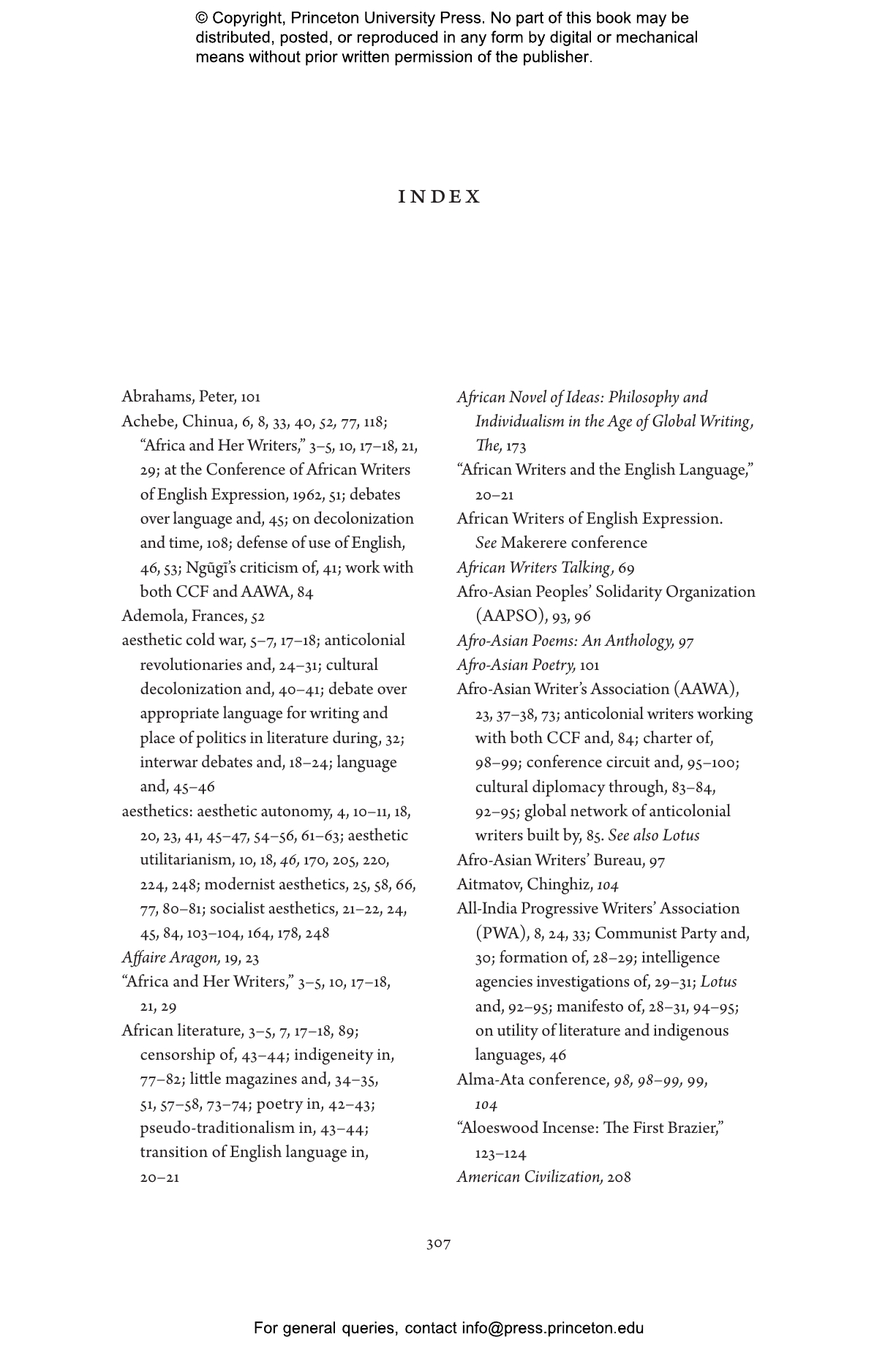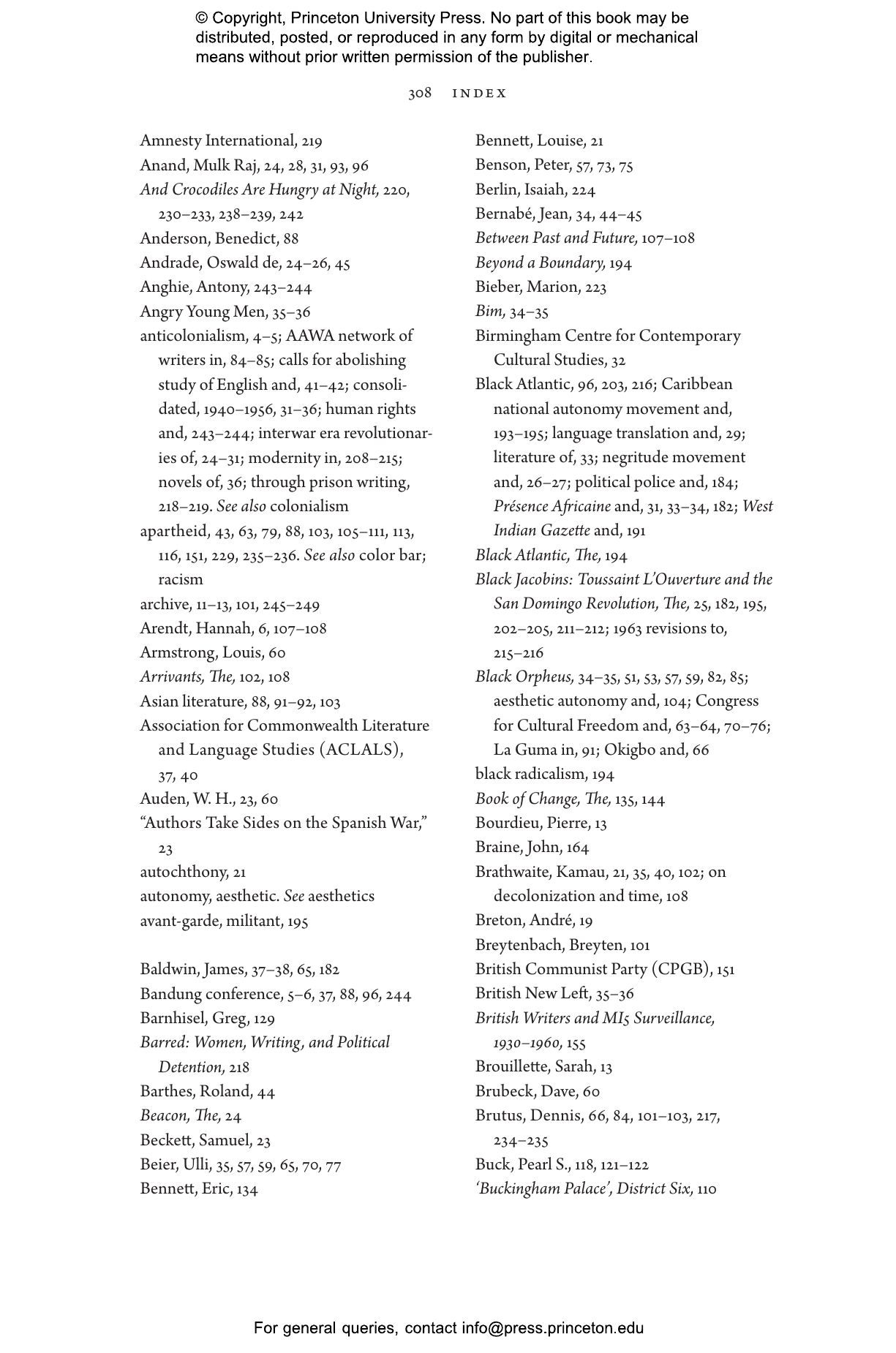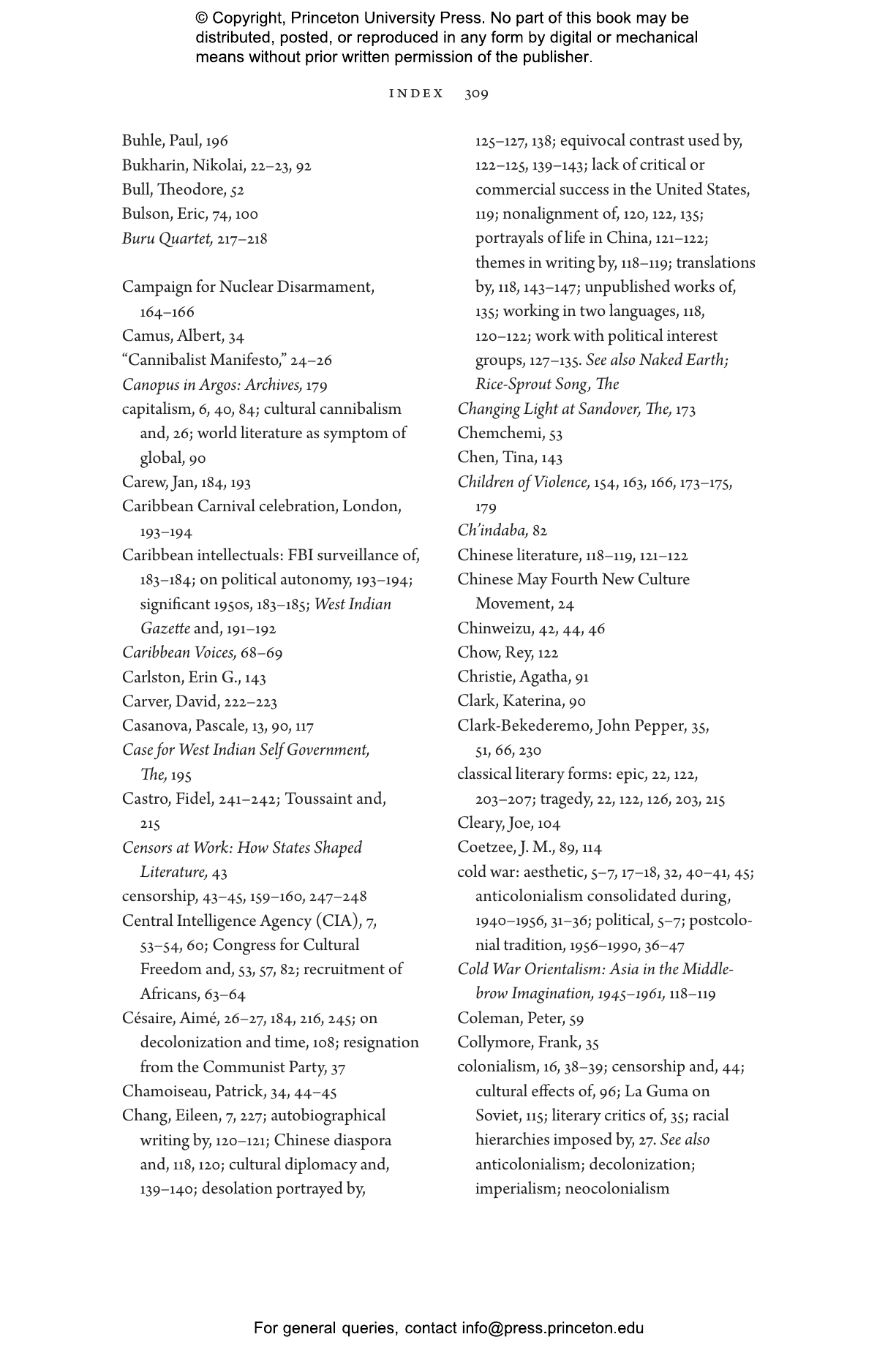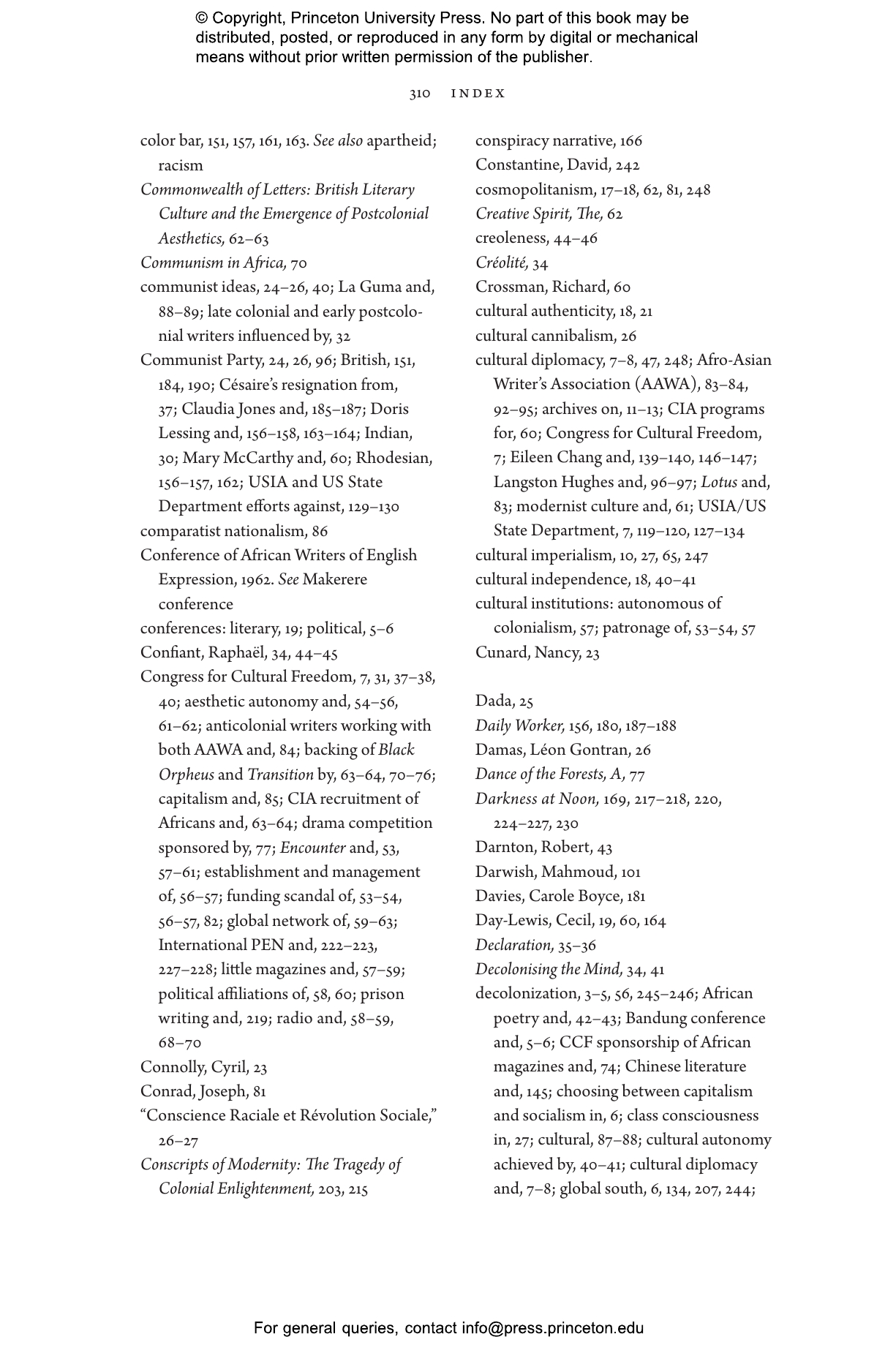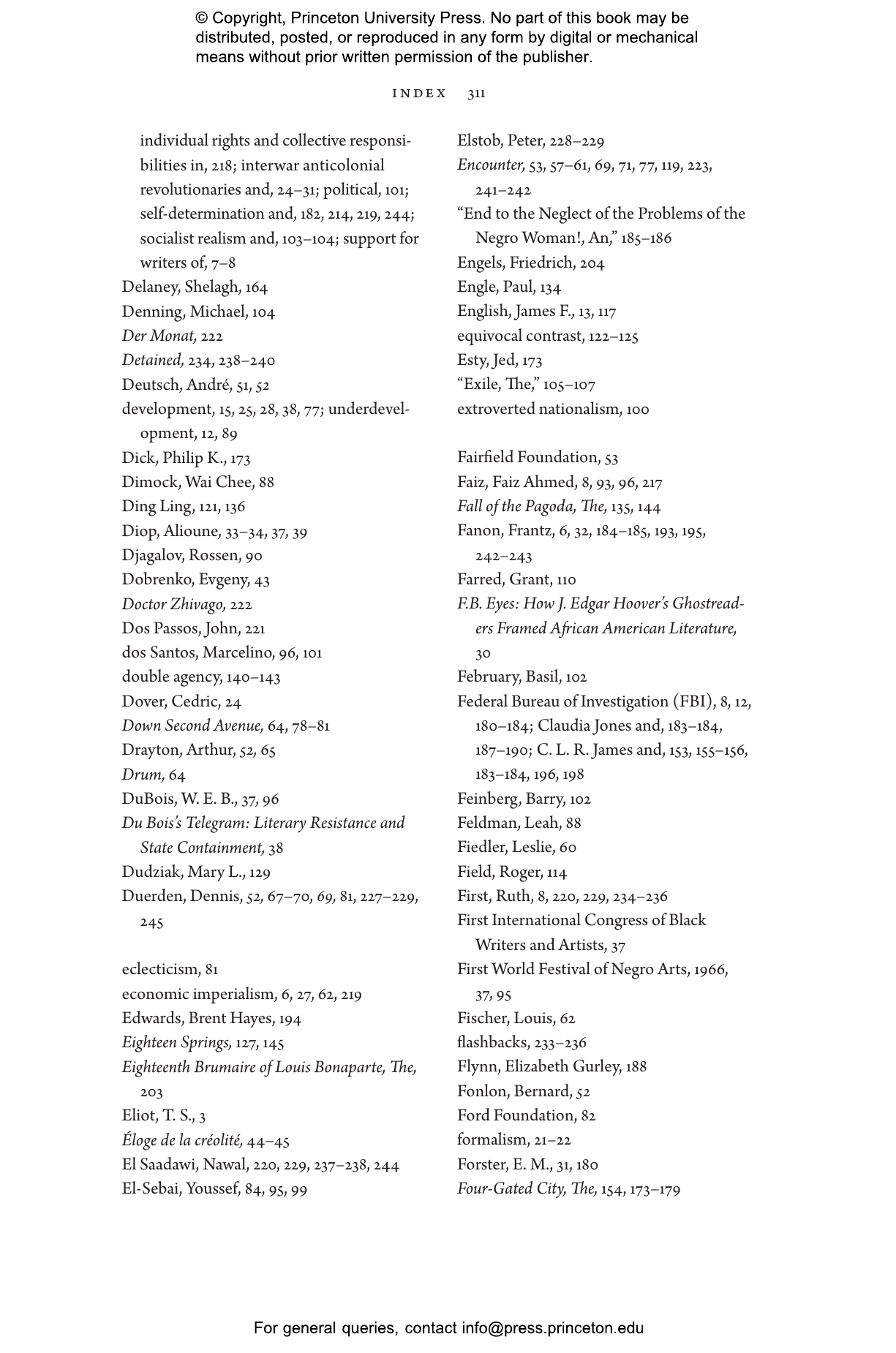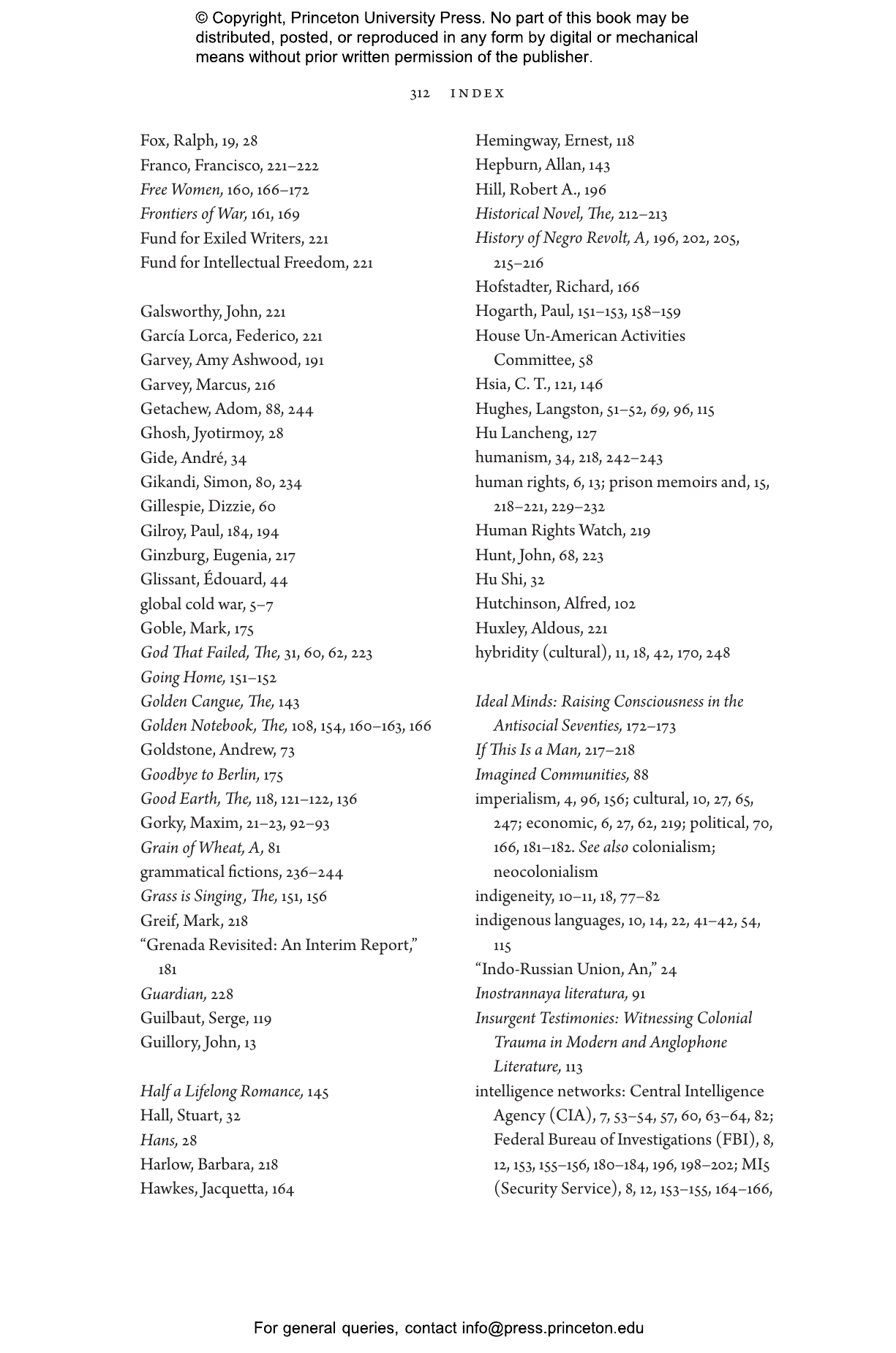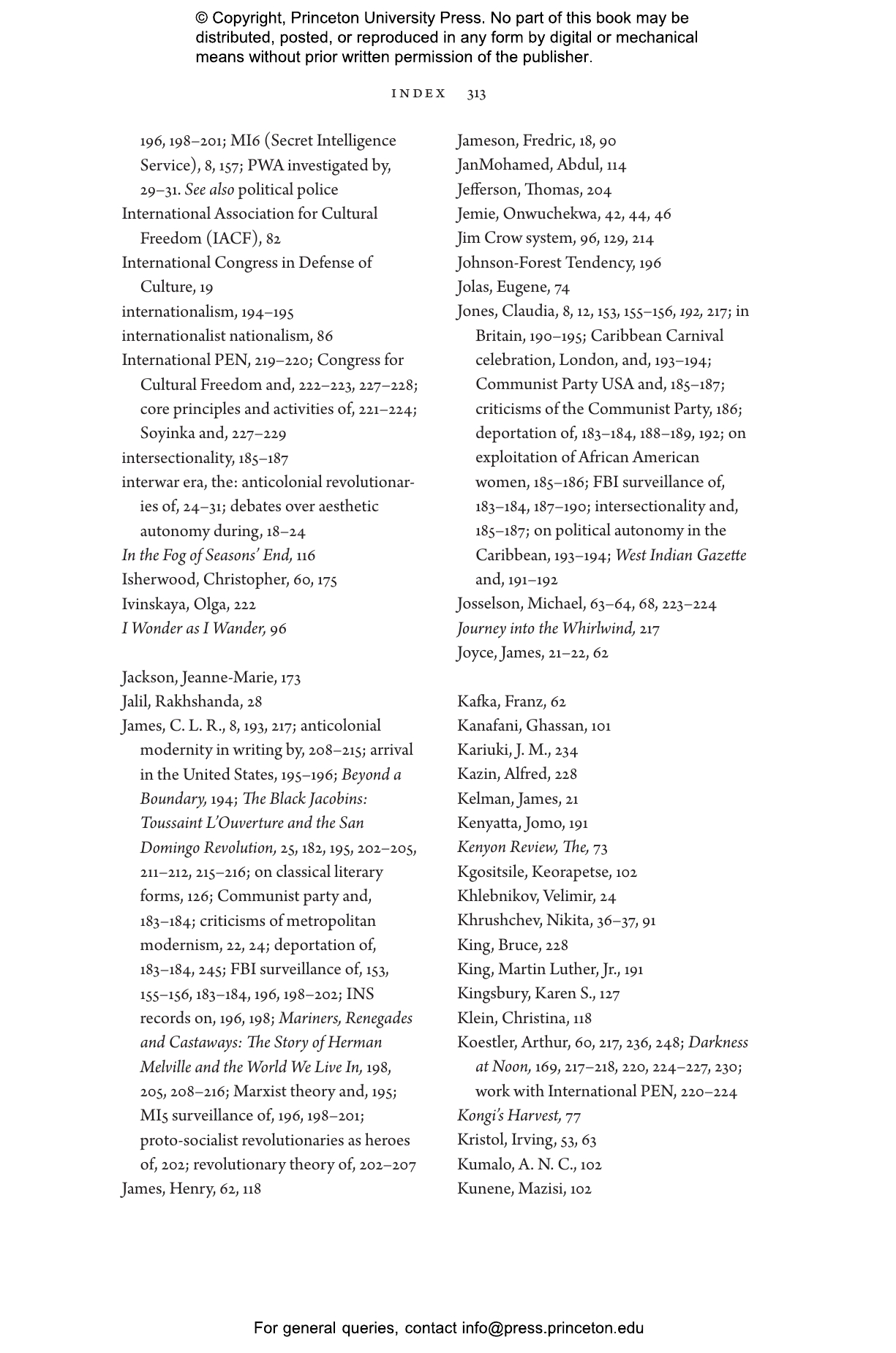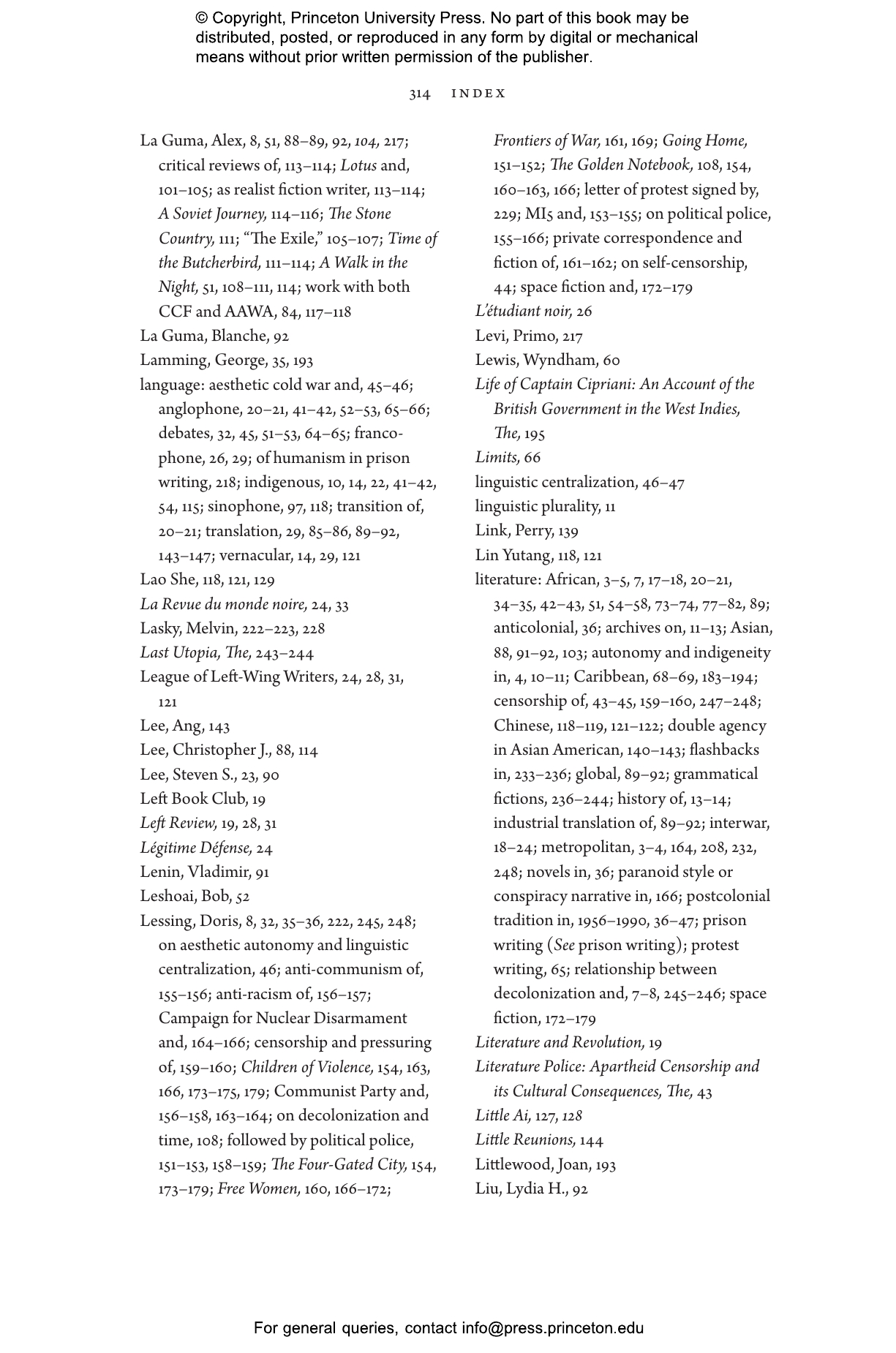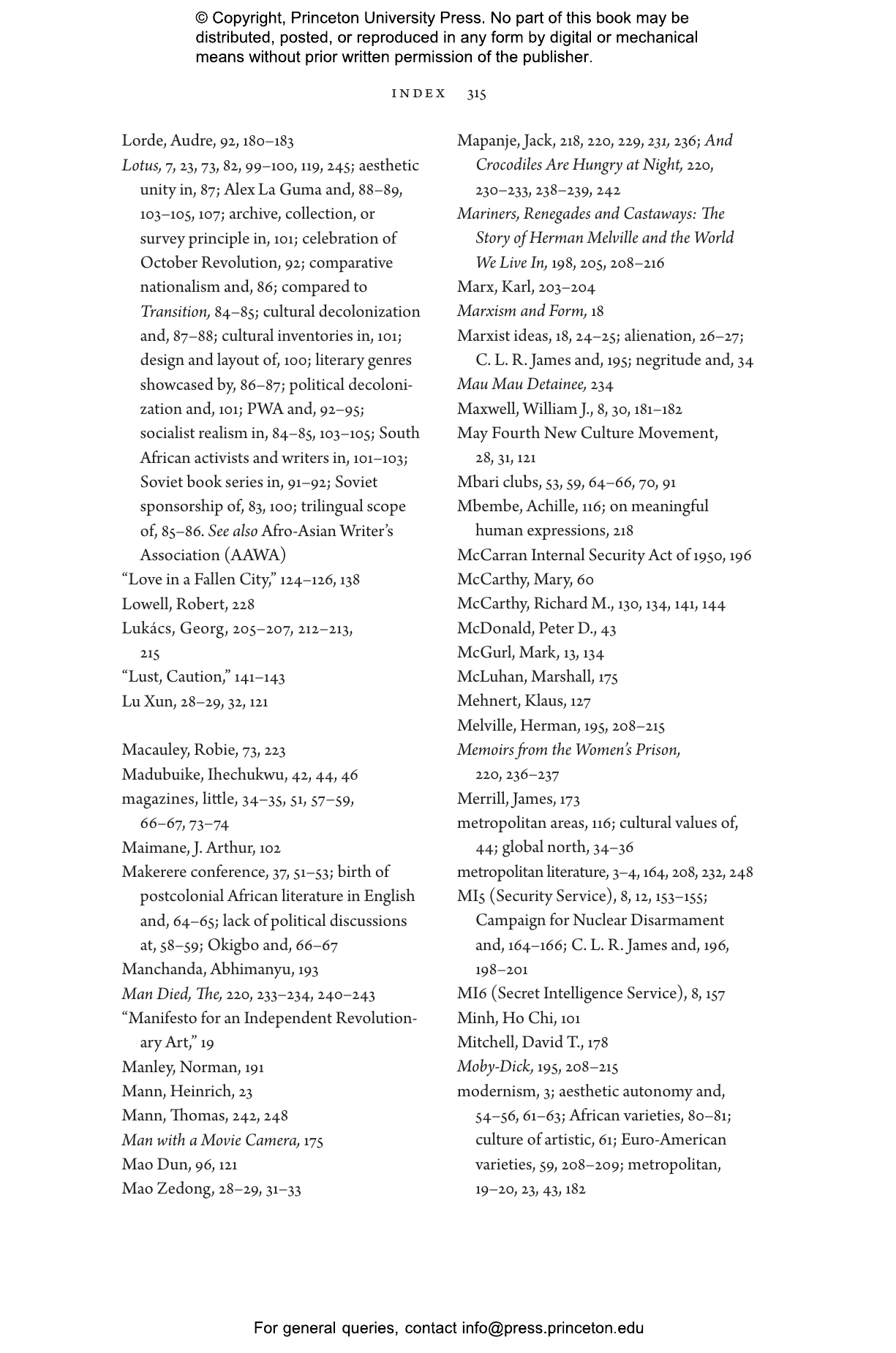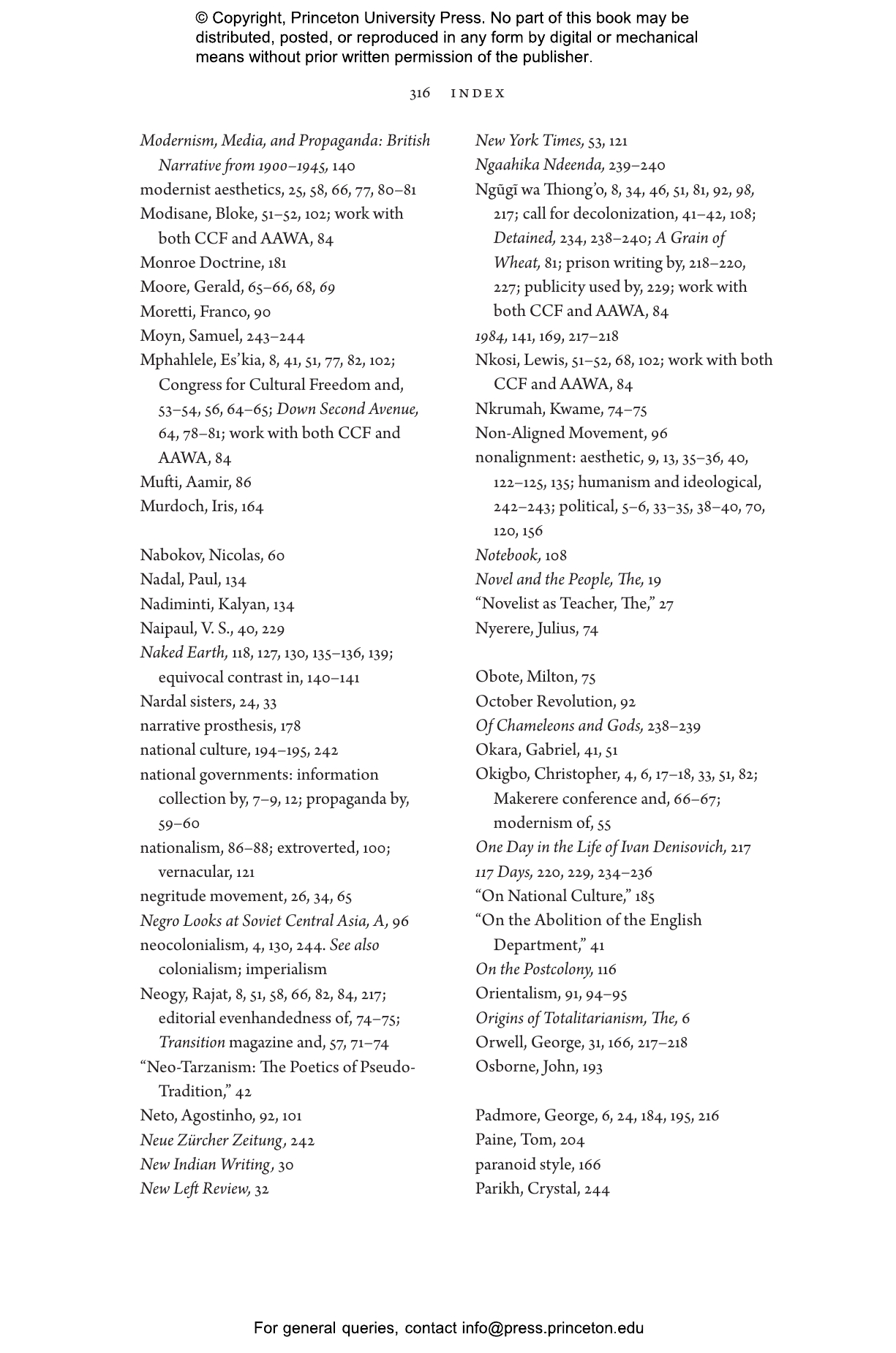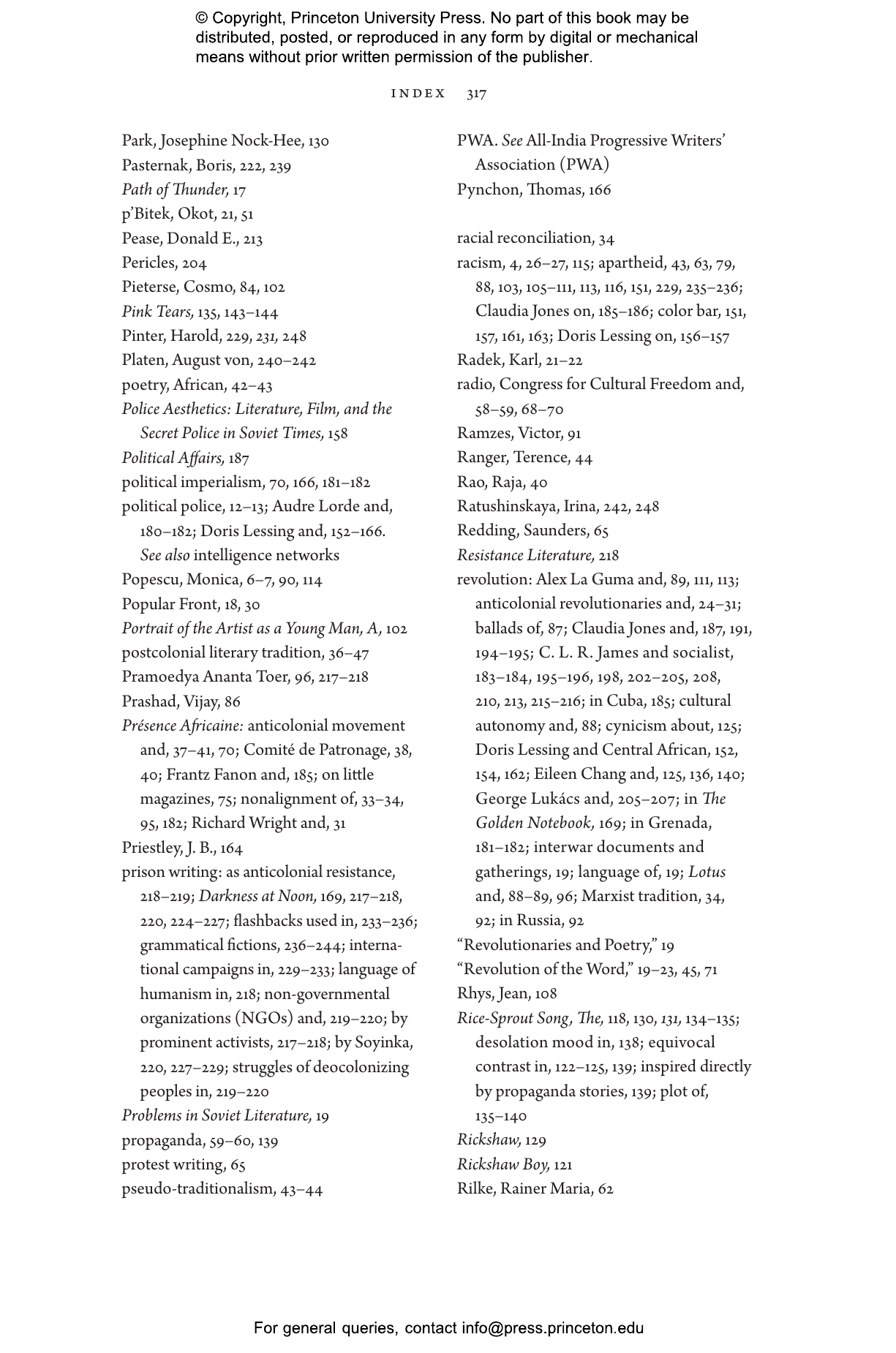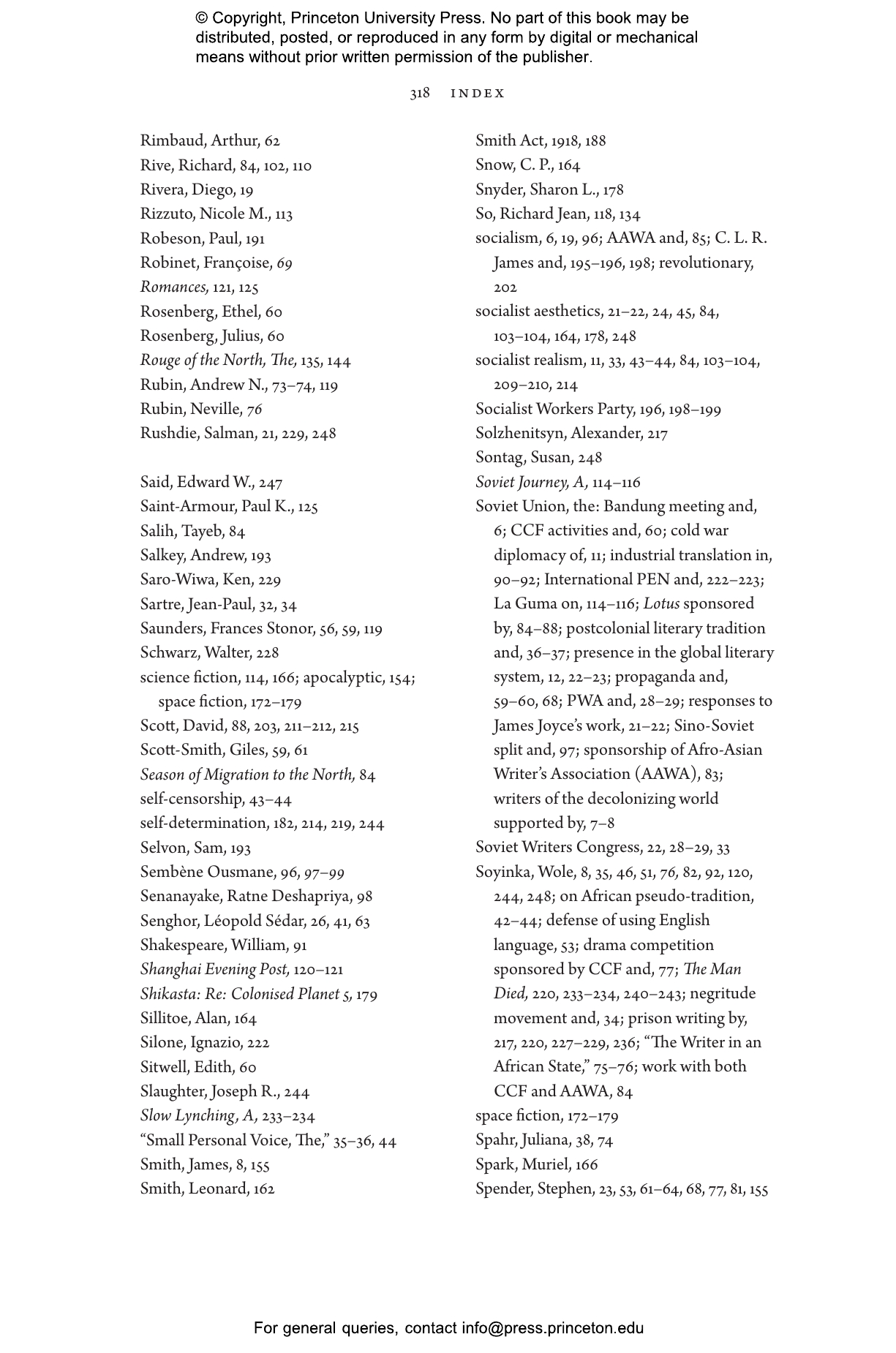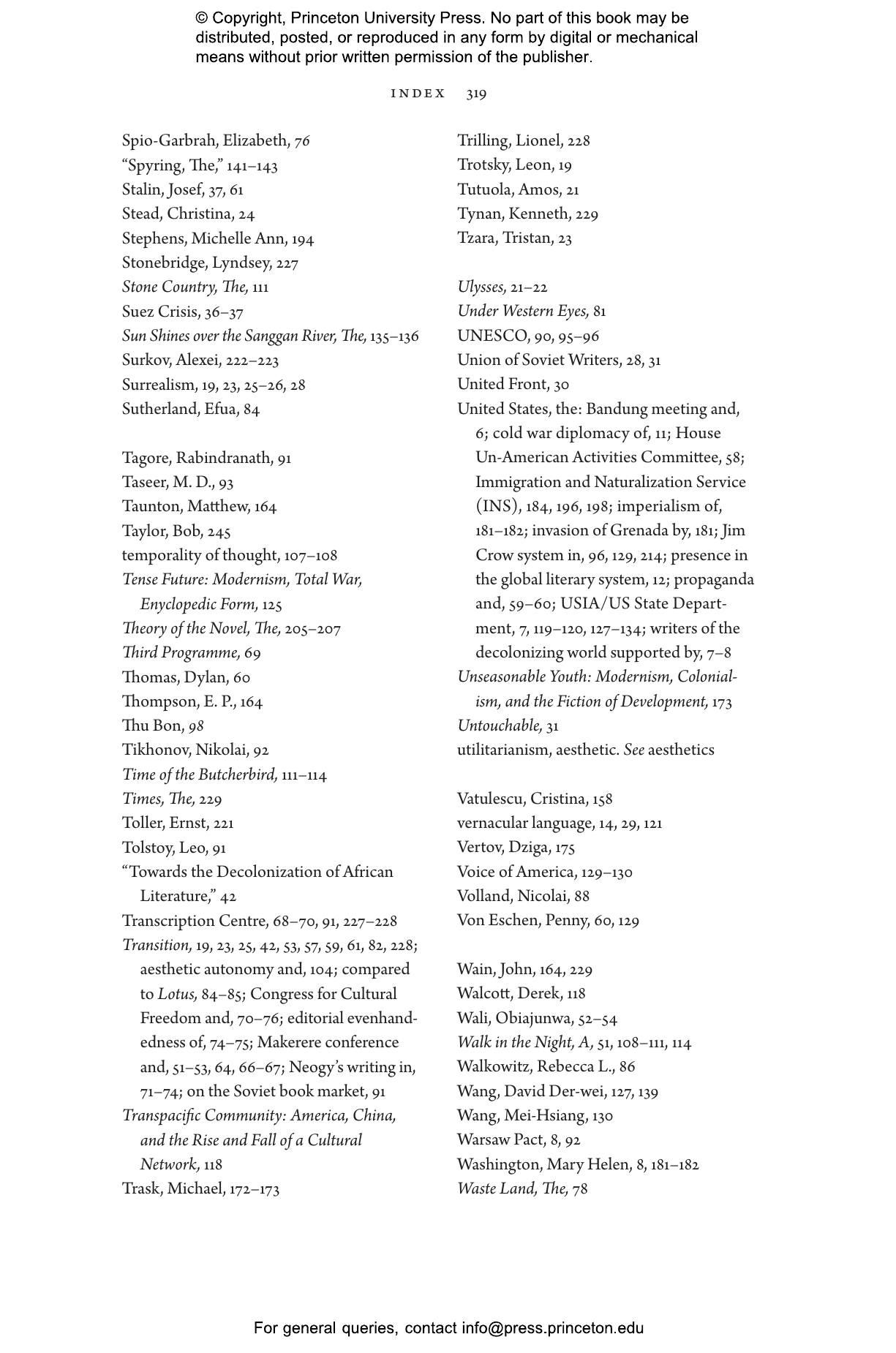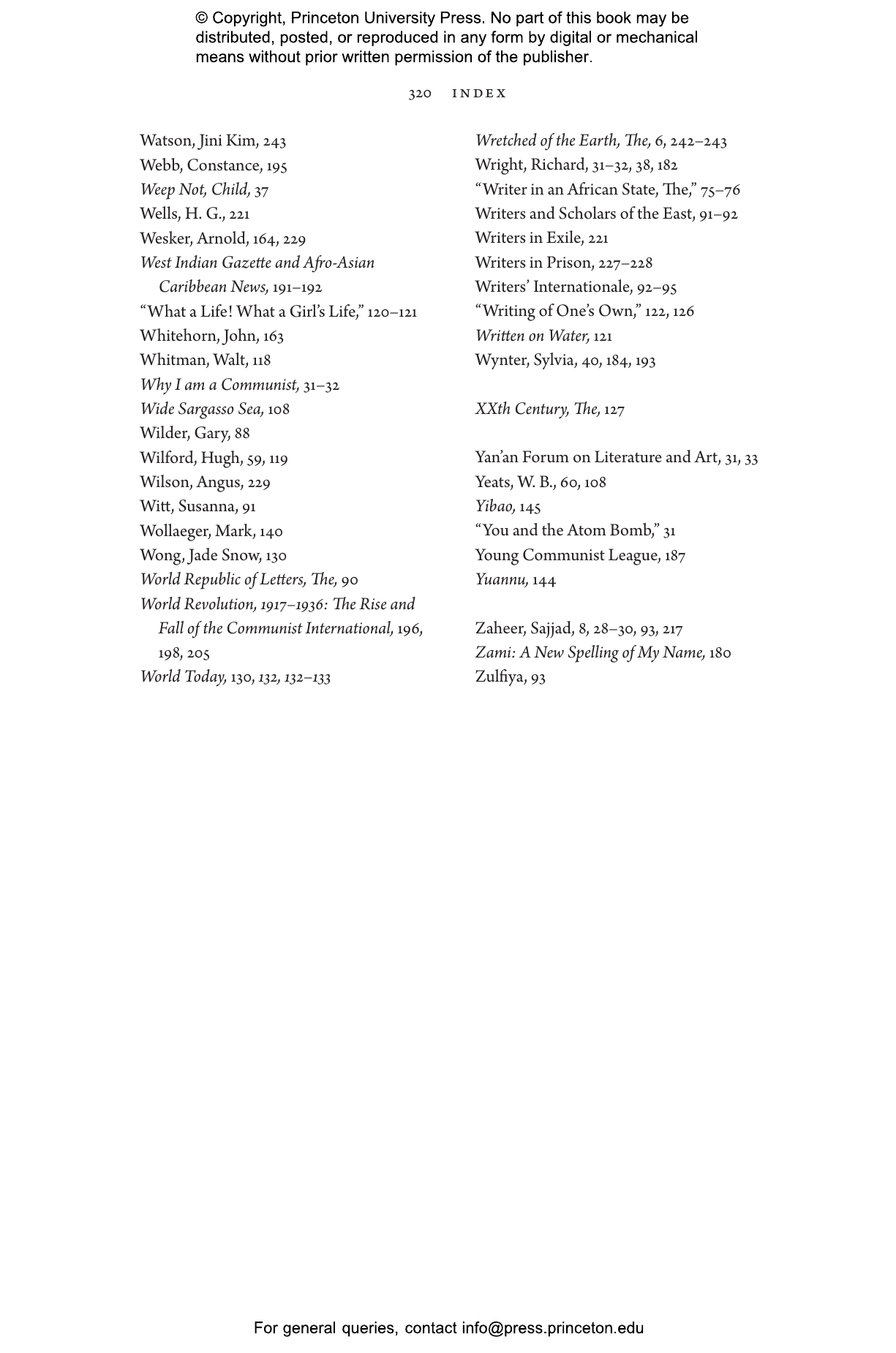How did superpower competition and the cold war affect writers in the decolonizing world? In The Aesthetic Cold War, Peter Kalliney explores the various ways that rival states used cultural diplomacy and the political police to influence writers. In response, many writers from Africa, Asia, and the Caribbean—such as Chinua Achebe, Mulk Raj Anand, Eileen Chang, C.L.R. James, Alex La Guma, Doris Lessing, Ngũgĩ wa Thiong’o, and Wole Soyinka—carved out a vibrant conceptual space of aesthetic nonalignment, imagining a different and freer future for their work.
Kalliney looks at how the United States and the Soviet Union, in an effort to court writers, funded international conferences, arts centers, book and magazine publishing, literary prizes, and radio programming. International spy networks, however, subjected these same writers to surveillance and intimidation by tracking their movements, tapping their phones, reading their mail, and censoring or banning their work. Writers from the global south also suffered travel restrictions, deportations, imprisonment, and even death at the hands of government agents. Although conventional wisdom suggests that cold war pressures stunted the development of postcolonial literature, Kalliney’s extensive archival research shows that evenly balanced superpower competition allowed savvy writers to accept patronage without pledging loyalty to specific political blocs. Likewise, writers exploited rivalries and the emerging discourse of human rights to contest the attentions of the political police.
A revisionist account of superpower involvement in literature, The Aesthetic Cold War considers how politics shaped literary production in the twentieth century.
Awards and Recognition
- Shortlisted for the MSA Book Prize, Modernist Studies Association
- Winner of the MSA Book Prize, Modernist Studies Association
- A Choice Outstanding Academic Title of the Year
Peter J. Kalliney is the William J. and Nina B. Tuggle Chair in English at the University of Kentucky. His books include Cities of Affluence and Anger, Commonwealth of Letters, and Modernism in a Global Context.
"Kalliney’s book is an intriguing read for those interested in understanding the Cold War and situating the relationship between the state and anticolonial writers."—Christina Obolenskaya, LSE Review of Books
"A wonderful addition to the reevaluation of mid-century literary products."—A. S. Newson-Horst, Choice
"A groundbreaking work. . . . [The Aesthetic Cold War] points to a prehistory of postcolonial literature that is almost never discussed in the field."—Nivedita Majumdar, Catalyst
"[S]uperb. . . . [The Aesthetic Cold War] offers a compelling portrait of writers struggling to make art— including activist art."—Michaela Bronstein, American Literary History
“How was the cultural cold war fought beyond the ground zero of the Left Bank? How did postcolonial writers navigate intellectual crossroads booby-trapped by Soviet as well as US diplomats? With lucid evenhandedness, Peter Kalliney shows how the literatures of decolonization were shaped by the global counterpressures of the cold war as much as by the struggle to outwrite local imperialisms. The Aesthetic Cold War offers nothing less than a fresh, dynamic history of the postwar world republic of letters.”—William J. Maxwell, author of F.B. Eyes: How J. Edgar Hoover’s Ghostreaders Framed African American Literature
“Nuanced and masterful, The Aesthetic Cold War reorients the understanding of twentieth-century world literature. Ranging from China to sub-Saharan Africa to the West Indies, this global study shows how the aesthetic conflict between the West and the Soviets was of equal importance to decolonization and the development of national literatures in the global south. Neither one determined the other, Peter Kalliney demonstrates, and their entanglements were intricate and often surprising. Essential.”—Greg Barnhisel, author of Cold War Modernists: Art, Literature, and American Cultural Diplomacy
“Using amazing archival materials, this lively and organized book shows that cold war–cultural diplomacy programs served as foundational conditions for postcolonial literary production after World War II.”—Sarah Brouillette, Carleton University
“Reframing the literary and intellectual history from the 1930s to the end of the cold war, The Aesthetic Cold War takes us behind the scenes to show us the full extent of state interventions in the world of letters. This original book opens the way for a more historically grounded understanding of world literature’s disciplinary formation.”—Eleni Coundouriotis, University of Connecticut
